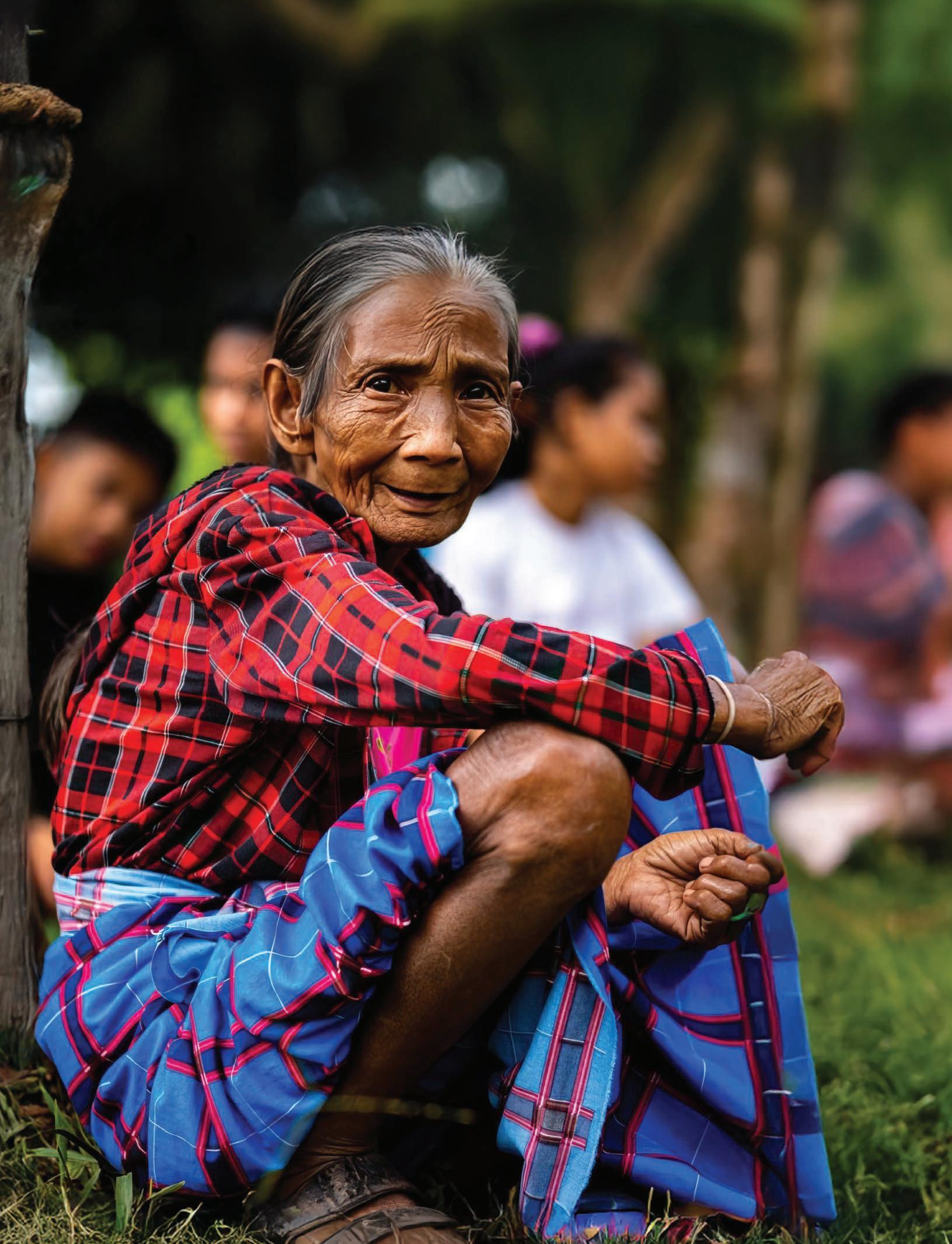

FRoniiers

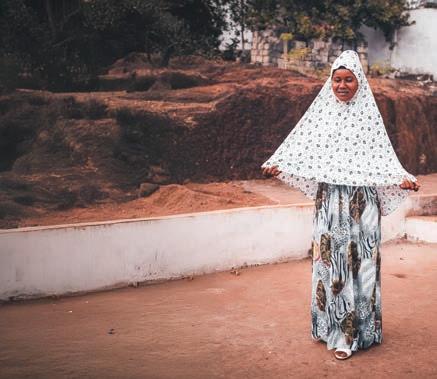
FANTA, THE PRECIOUS GIFT 15 DISCOVERING THE TRUTH
HOPE IN THE LORD
DISCIPLESHIP AND DELIVERANCE 18 JOURNEY OF THE CURIOUS YOUTH 20 FROM CURSED TO BLESSED
TWO PATHS, ONE BATTLE

24 FAREWELL TO THE GOGODALA 26 THE PRECIOUS FAITH OF UKA KULIPANG
27 DREAMS, THE WEB AND A BAPTISM 28 INTRODUCING THE KITCHINGS
29 THE HAUNTING SILENCE
30 POPCORN AND A PRAYER
31 INSTRUMENTAL HEALING
32 FOLLOWING THE MACEDONIAN CALLS
33 GAINING MORE THAN YOU LOSE 34 RIBIKA
35 PURPOSEFUL PRAYER
36 DRUNK ON THE TRAIL
37 JAPAN BOUND: INTRODUCING THE SOLIS

38 RECEIVE TO GIVE
39 GOD BROUGHT
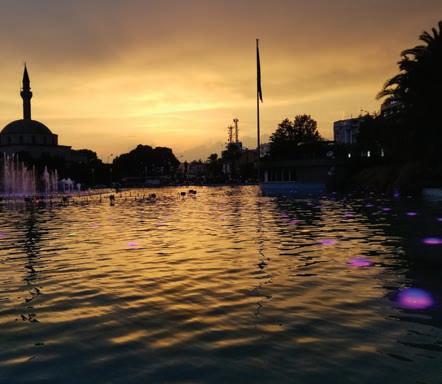
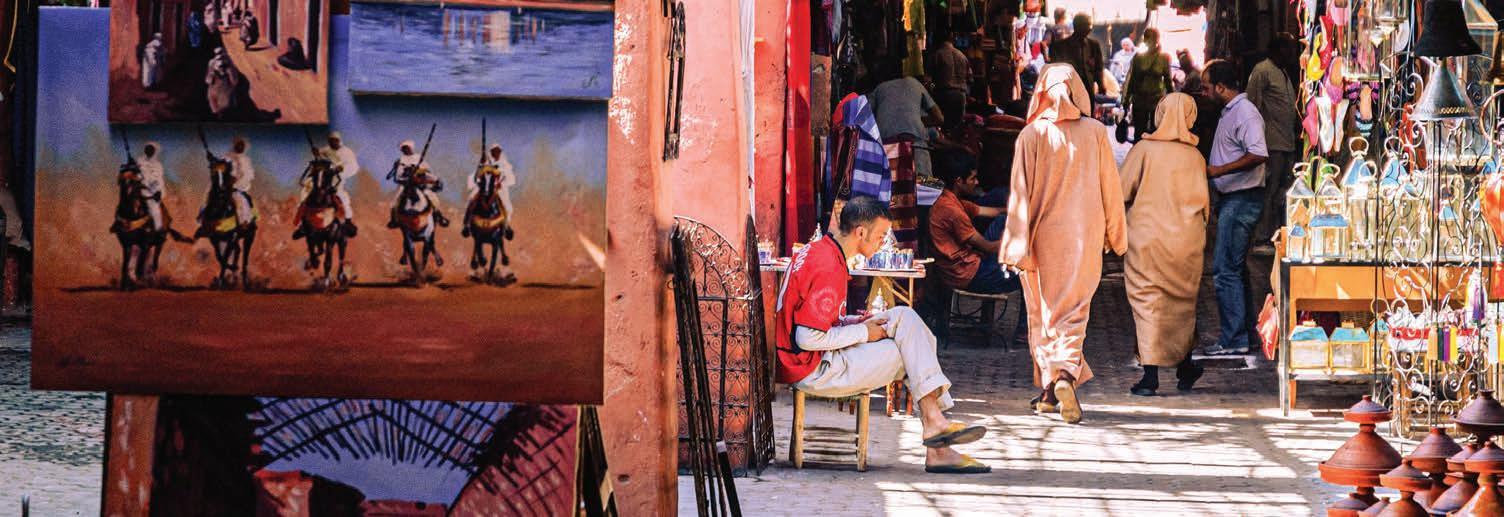
BY CRISTIAN DORGO
GOSPEL VS. CULTURE IN THE MISSION FIELD
When Fray Diego de Landa, a Catholic missionary accompanying Spanish forces in the New World, discovered extensive Maya libraries, he knew what he would do. He burned them all, an event, he said, the Maya “regretted to an amazing degree, and which caused them much affliction.” The books, in his opinion, were all “superstition and lies of the devil.” And so, in 1562, the poetry, history, literature, mathematics and astronomy of an entire civilization went up in smoke. Only three documents survived de Landa’s misguided zeal.
This incident and many more show that missionaries have sometimes acted in a culture-destroying manner. Whether through misinterpreting the Great Commission, pride, culture shock or simple inability to comprehend the values of others, we have needlessly opposed customs we did not understand. Some, had we understood them, might have served as communication keys for the gospel. When missionaries represent Jesus, they can have a positive influence on other cultures.
But when the gospel gets lost amidst the glory of a missionary’s home culture, it can cause needless chaos. A man once shared a story in a mission convention about a so-called “Church of Pants” he discovered. He had traveled to a remote area, taking a cab on a dusty road from the small airport. Curious about the driver’s religious beliefs, he asked if he was a Christian. The driver responded negatively, stating that he knew all about Christians but that they wore pants. In contrast, the driver and most of his culture wore robes. According to him, the missionaries there perceived the robes as too feminine and skirtlike, leading them to convince converts to wear pants. Consequently, the Christians there became known as the “Church of Pants.” The key distinction between Christian missionaries and Western missionaries lies in their approach to cultural engagement.

Unlike Western missionaries who impose specific cultural standards, Christian missionaries adhere to a heavenly standard—Christ. This does not, however, negate their desire to positively influence cultures. In cases where cultures engage in harmful practices such as human sacrifice, widow burning and oppression, Christian missionaries may need to respectfully encourage change. Animists struggling under a burden of fear and spiritual oppression often beg for change!
But not every aspect of every culture is evil and we need to respect the work God has already accomplished over the centuries.
“...and to the Jews I became as a Jew, that I might win Jews...” (1 Corinthians 9:20)
“Paul had conducted himself in this way among all classes of people. He had done considerable preaching to the Jews, and his approach to them was from the point of view of one of themselves. Not only did Paul adapt his preaching to the Jews, but he also appeared to conform to their customs when no matter of principle was involved. The knowledge of Judaism was put to good use by Paul, both in his evangelizing efforts among his countrymen and in his own defense. He complied with their practices and prejudices as far as he could with a good conscience. He did not needlessly offend them but endeavored to use his familiarity with their beliefs and customs in a way that made it easier for him to present the gospel to them. His whole purpose in conforming to their philosophy of life as much as possible was to lead them to the Savior” (SDA Bible Commentary).
Does the presence of missionaries necessarily lead to the destruction of cultures? No! Certain aspects may need to be changed, the same way that doctors remove tumors and encourage lifestyle changes, but the goal is not to destroy cultures. It is to save people!
CRISTIAN DORGO (AFM Europe Recruiting Director)
BY DIANA VASILE
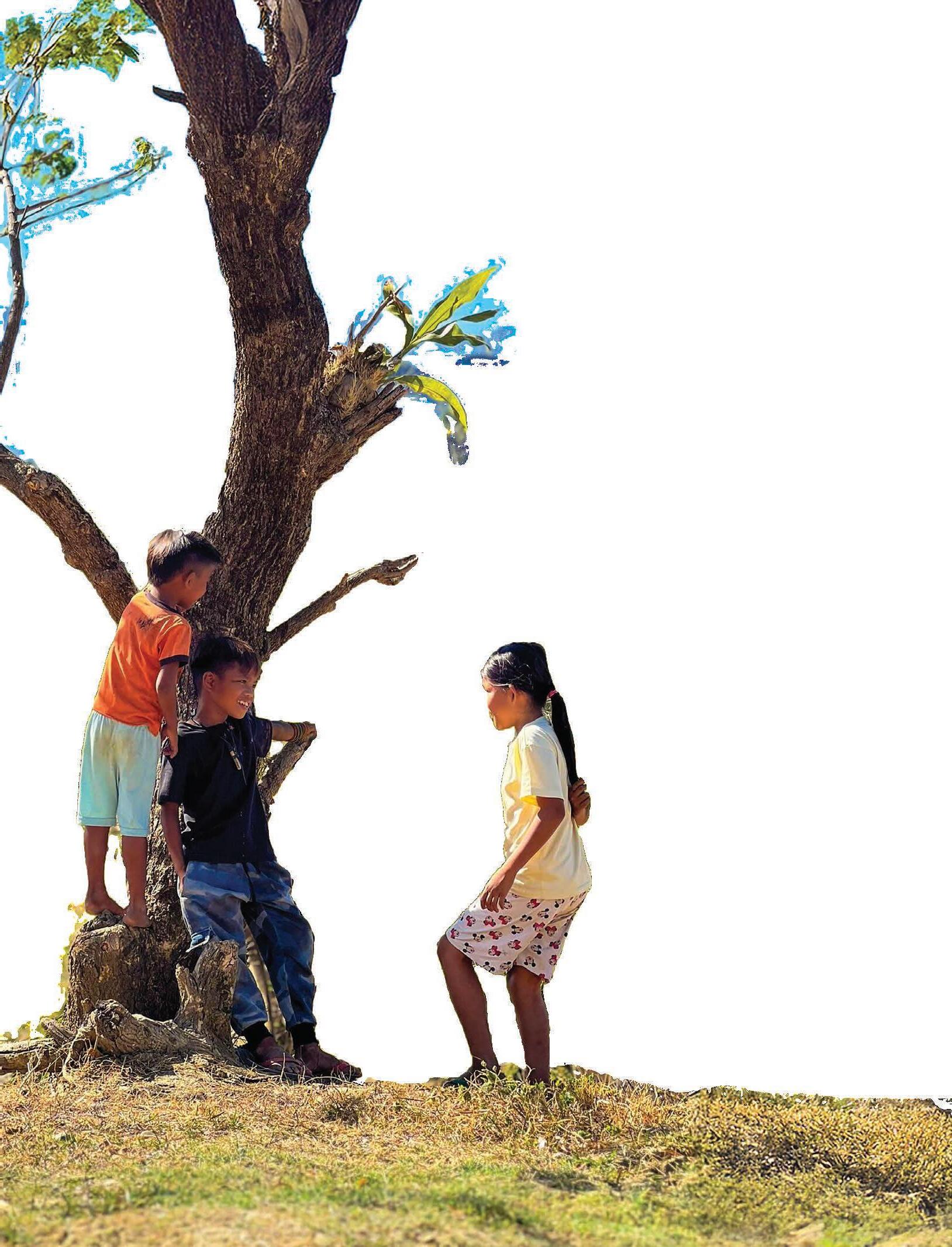
Has the God who prepared the Gospel for all peoples also prepared all the peoples for the Gospel?”1
This question opens a window into the incredible truth that God has been at work in every culture and community, preparing hearts to receive the good news of Jesus Christ. Across the globe, there are countless stories of people who have longed for the truth, sometimes for generations, and who are ready to embrace it if only someone would go and share it with them.
Take the story of the Karen people of Myanmar. For centuries, generation after generation, they clung to a prophecy that one day, a white brother would come with a book from God, a book that would reveal the truth they had been seeking. They repeated to their children the words of truth they still remembered from long ago and kept alive the hope that, sometime in the future, God will send someone who will guide them in the path of their Creator.
For years on end, the Christian community sent no one to this people group, numbering millions of individuals. When missionaries finally arrived with the Bible, the Karen people immediately recognized it as the fulfillment of their hope and joyfully
accepted the gospel. It’s a powerful reminder that God had already been working in their midst, preparing them for the moment they would hear about Jesus.
However, Christianity never became the main religion of the Karen as the propagation of the gospel has been hindered by historical and ongoing challenges. It’s plausible to consider that if the Karen had received the gospel earlier, the religious landscape might be different today. Early exposure could have allowed Christianity to become more deeply rooted before the onset of political conflicts and external pressures. A more established Christian presence might have provided a stronger foundation for the community to withstand subsequent challenges.
Stories like this should inspire us but also stir us to action. How many
of non-Christians have proved themselves many times more willing to receive the Gospel than we Christians historically have been to share it with them.”1 This sobering reality challenges us to reflect on our priorities and our commitment to the mission Jesus entrusted to us.
love of Christ should compel us to act, to move beyond our comfort zones, and to bring the light of His love to those still waiting in darkness.
Yet, even as we feel the weight of this responsibility, we can find hope
How many other communities are still waiting? How many generations have passed away without hearing the good news because we, as Christians, have been slow to respond to the Great Commission?
Ellen G. White speaks directly to this responsibility: “Christ’s last act before leaving this earth was to lay upon His disciples the charge to go into all the world and preach the Gospel. But the church has neglected her appointed work.” (Testimonies for the Church, Vol. 5, p. 206). This neglect has real consequences. Every delay means more people live and die without ever hearing the name of Jesus, despite the fact that God has already placed eternity in their hearts—a longing for Him that only the gospel
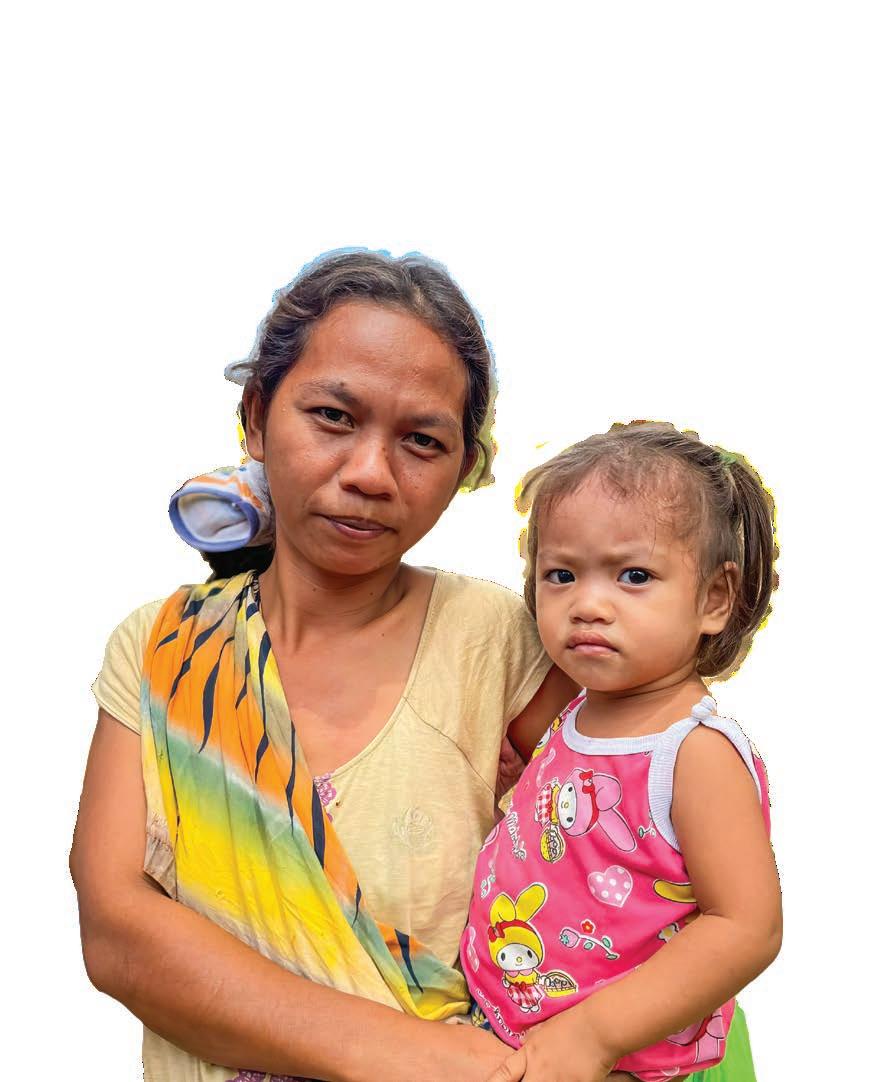
The question we must ask ourselves is this: What is holding us back?
Ellen White’s words challenge us further: “Why is it that there are not more missionaries? Why is it that the love of Christ does not constrain men and women to go to the ends of the earth?”
The Home Missionary, November 1, 1893). The
and courage in knowing that we are not alone. God has gone before us, preparing hearts and opening doors. Our role is to obey His call, trusting that He will bring the harvest. The story of the Karen people shows us that when we step out in faith, God’s preparation makes the way clear.
God has worked on the hearts of people across the world, but He calls on us to deliver the message. We have the opportunity and responsibility to share the good news with “every nation, tribe, people, and language.”
Today, the need is as clear as it was when Jesus, moved by compassion, told His disciples that the harvest is plentiful, but the laborers are few. Billions of unreached people are waiting for you to accept the call to take the gospel to the whole world.
God prepared their hearts. Will you be His hands?
1Eternity In Their Hearts – Don Richardson

DIANA VASILE (AFM-Europe Director)
The Importance of Intercultural Studies for Mission
BY JONY HAJAJ
Intercultural Studies and Discipleship Director

Intercultural studies are becoming inevitable and indispensable if we expect ministry to be effective in this globally networked world. It is not just good but necessary for those called to share the message across cultural borders. Central to intercultural studies is that every culture has its own unique worldview, values and communication styles. This information is vital to missionaries to help them relate better and more respectfully with the people they seek to reach. This will prevent misunderstandings and lead to the building of good and real relationships.
COMMUNITY
For example, most non-Western cultures are grouporiented and may emphasize family and community. So a missionary unaware of the fact may be concerned with individualistic acts like conversion without looking at the implications of faith decisions on the community. In many African cultures, the concept of Ubuntu (“I am because we are”) emphasizes community and interconnectedness. A missionary entering such a community might initially focus on preaching individual salvation and personal relationship with Christ, which is a common approach in Western contexts. However, this focus on individualism might not resonate well with the communal mindset of the local people. Instead of focusing on individual conversion, the missionary might engage the community leaders and elders, understanding their influence and seeking their approval by organizing community gatherings to present the message of Christianity, highlighting the concept of collective salvation and how faith can strengthen community bonds.
By recognizing and respecting the communal nature of the culture, the missionary’s message is more likely to be received positively and understood within the appropriate cultural
framework. This approach not only facilitates acceptance but also honors the cultural dynamics, ensuring that the message of faith is integrated into the communal life rather than perceived as a threat.
CULTURAL SENSITIVITY
Cultural sensitivity is one of the basic principles of the effective working of a missionary. It involves being aware of and respecting other cultures’ beliefs, practices and customs. Intercultural studies enable a missionary to walk graciously and humbly through such differences. This sensitivity does not compromise the gospel but ensures that we present the gospel in ways that honor the recipient’s cultural identity.
A practical example of this is language. If a missionary learns but a few sentences of the indigenous language, it will positively influence that missionary’s interaction with people tremendously and demonstrate respect for trying to come into their world. Cross-cultural studies understand that language is more than the vehicle for communication; it is the entry into a culture. One of the critical values of intercultural ministry is respect. It is an attitude that is taught through listening, learning and treating the cultural expressions of others as valuable treasures. Intercultural studies tend to develop an attitude of learning, not teaching in missionaries. This fosters mutual respect and opens the way for deeper, more meaningful exchanges.
For example, understanding Islamic beliefs and practices when working with Muslims will lead to respectful dialogue and relationship building. A well-trained missionary in the field of intercultural studies will not come to his Muslim friends to check his preconceived ideas and stereotypes but, instead, will search for ways to try to understand his friends’ faith within the tradition of Islam and establish commonality.
Teacher Aura quizzes missionary Kyle Tumberg at the language school in Chiang Mai.
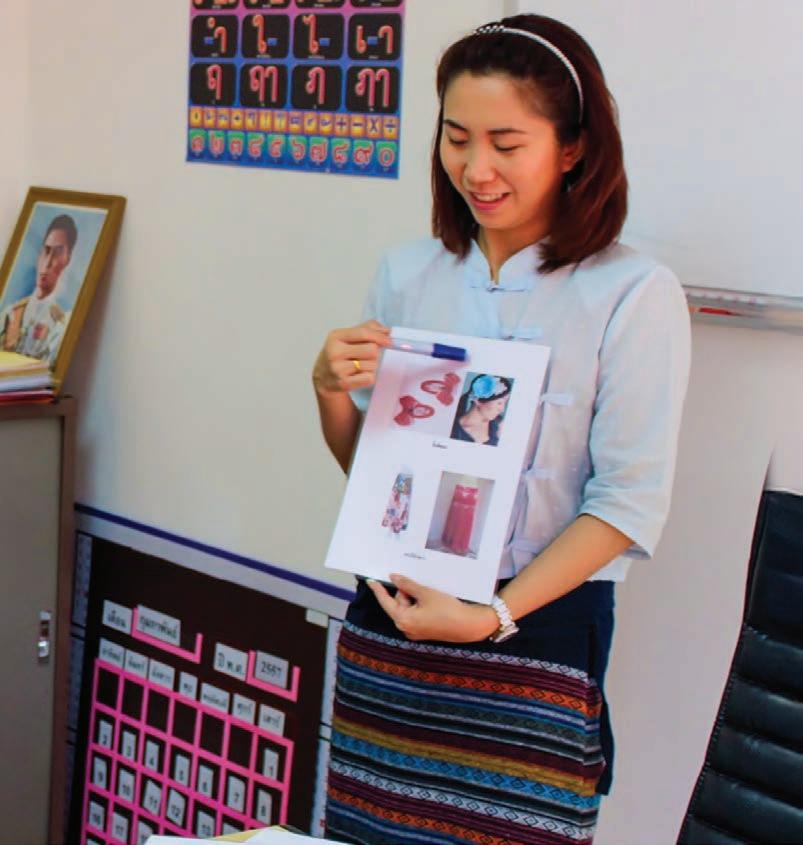
The process of re-contextualizing may open up an opportunity to faithfully present the gospel.
CONTEXTUALIZATION
This is what contextualization means: making a cultural adaptation of the presentation of the gospel in a particular context. Brian Willson’s experience translating a sentence into the Thai language illustrates this point. In the following sentence, he could not manage to make it sound right in Thai and yet still convey the subtleties that the sentence includes: “In this hour of utmost extremity, David, instead of permitting his mind to dwell upon these painful circumstances, looked earnestly to God for help.” The answer came when he shortened the sentence: “In this crisis hour, David did not dwell on the painful circumstances but turned to seek help from God.” When the above sentence was shortened, dropping the words “instead of” Duang and Ammart, two local helpers working on the translation, declared this to be correct. “That’s it!”
Stories may be an effective tool for communicating the gospel to some cultures characterized by a strong tradition of orality.
The example shows how the missionary's message should be contextualized. The sentence became more relatable and meaningful to the Thai people by bringing that level of adaptability to the language and taking out complex structures. It also respects the cultural context and makes possible the effective communication of the core message and its appeal to seek God in times of crisis.
By recognizing and respecting the communal nature of the culture, the missionary’s message is more likely to be received positively and understood within the appropriate cultural framework.
LOCAL ADAPTION
It would also mean using local symbols, stories and traditions to explain biblical truths. For instance, stories may be an effective tool for communicating the gospel to some cultures characterized by a strong tradition of orality. This is where intercultural studies become important in guiding missionaries to understand cultural touchpoints for sharing the message of Christianity. Gideon Petersen’s work with the Himba people is a good example of this approach. He initially tried various Christian techniques, including traditional Bible studies, visual aids like felt boards and picture rolls, lessons from everyday life, and teaching English. None of these methods were successful until he observed a special ceremony that involved traditional songs, dancing and chanting. This insight led him to incorporate these cultural elements into his ministry. He began recording oral Bible stories in the Himba language, integrating traditional songs, poetry and chants. These recordings were then distributed to 53 men and women who were eager to hear the Bible stories through their own cultural lens.
RESPECTFUL ENGAGEMENT
Ultimately, intercultural studies revolve around bridging that gap between any two given cultures. It’s about finding common ground and creating spaces where the gospel can be shared and received in openness and mutual respect. In our global village, where cultural misunderstanding results in conflict, the missionary with intercultural knowledge becomes a peacemaker and bridge-builder. The importance of this intercultural preparation for mission work cannot be exaggerated. It improves cultural sensitivity, allows for respectful engagement and accomplishes the contextualization of the Christian message. In view of the Great Commission, missionaries seeking to understand and engage other cultures transform it from being just a strategy into a calling. By doing this, the missionaries would be able to faithfully and effectively share the love of Christ in an increasingly multicultural world. By this, they embody the incarnational ministry model — just as Jesus ministered to people, He came not to be served but to serve and give His life as a ransom for many (Mark 10:45).

BY MARSHALL JACKSON
GOD'S CALL
My name is Marshall Jackson. I grew up in an Adventist family in Europe. I spent my childhood listening to Bible stories and wishing to be used by God, just like the Bible characters. With time, these dreams faded away but I always felt God calling me to dedicate my life in total service to Him.
Evelyn, my wife, grew up on an island in the Caribbean. She was raised in a family divided between Christian and secular beliefs. When she was 11, her family got invited to an outreach program, and a few months later, she got baptized. Nevertheless, it wasn’t until she was 17 that she developed a relationship with God and dreamed of becoming a missionary.
Evelyn and I met in a mission school in South America. We got back in touch after several years, and a relationship ensued. We were later baptized and married. Together we decided to put our lives in God’s hands
and do whatever He asks of us.
The first call came quickly. My parents decided to sell their property to start a missionary project elsewhere. After prayerful consideration, we decided to follow them in this adventure. We spent a year in our new country, learning the language and trying to be as useful as possible to the local church. Unfortunately, things didn’t go as we had hoped; the project we came to do was not advancing. It seemed like God had firmly shut all the doors.
As time went by, we accepted the situation and lived an ordinary life. During this time, Evelyn became pregnant and gave birth to little Ismael. Yet throughout this seemingly wasted time, God was preparing us for His calling.
Shortly after the birth of Ismael, we once again felt a strong call to service. Knowing that there was nothing we could possibly do

by ourselves, we prayed for God’s guidance. A few months after the initial prayer, we met a young couple who were, back then, missionary candidates of AFM.
We had a lovely conversation with them, but we soon forgot about the organization. A few weeks later, while conducting our own research, we came across the AFM website and remembered the conversation we had with the other couple. We took a few days to search the website and to pray about whether or not God wanted us to apply.
We had many doubts and felt totally unqualified, but in the end, we surrendered our hearts and prayed: “Lord, if it is not your will for us to work with them, please, just close all the doors. And if it is your will, we are open to go and do whatever you ask of us.”
Everything has happened very quickly since that day. God proved that He is the One who has been guiding the events all along.
Recently, He has put into our hearts the desire to present Jesus to the Maghreb people as their loving and living Saviour. We are very excited about launching into the mission field and hope with all our hearts to be a blessing to this population who must know their Savior, Jesus Christ
MARSHALL, EVELYN & ISMAEL JACKSON Volunteer Missionary Candidates (Mahreb Project)
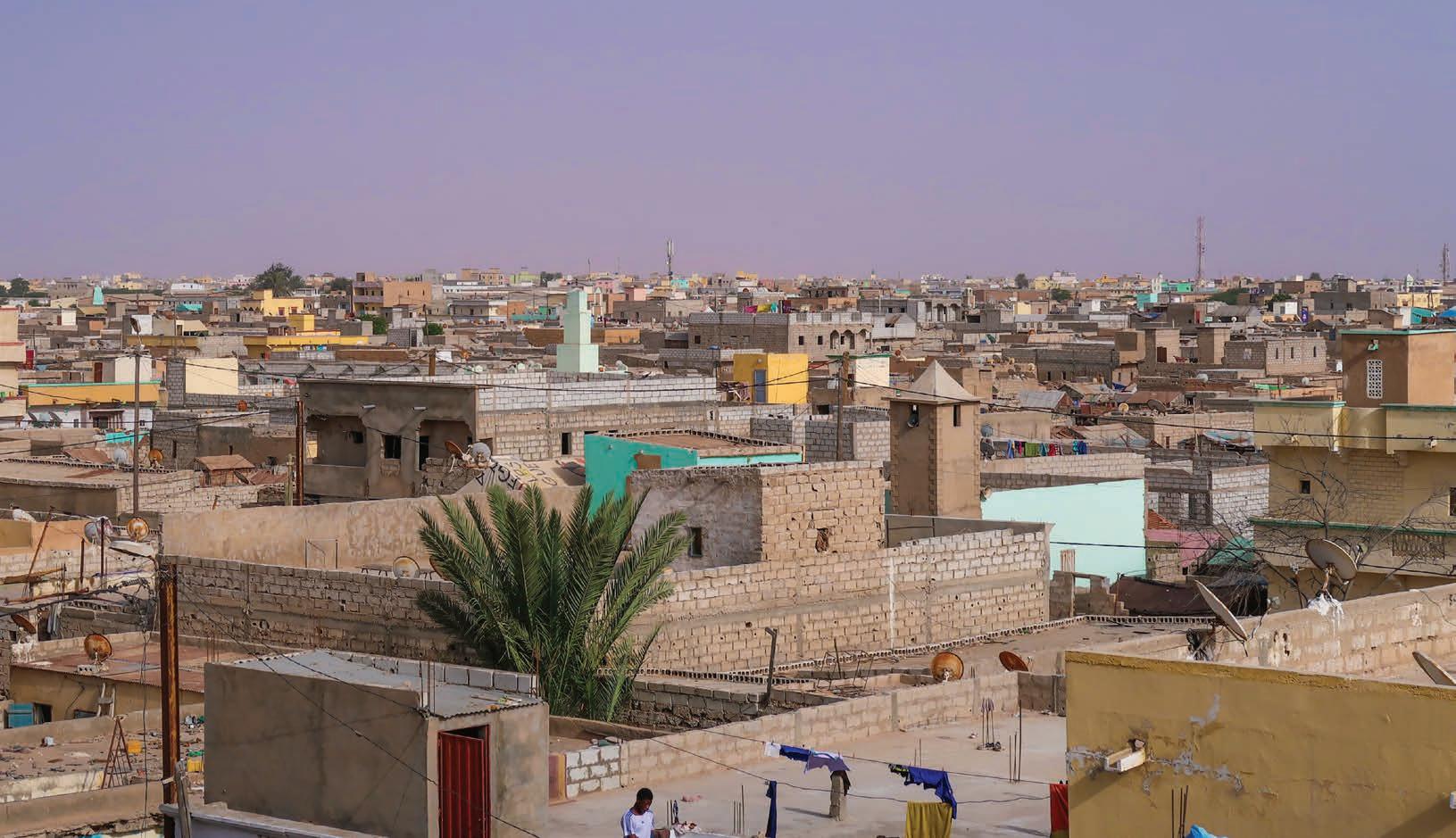
UNSEEN POWERS AT WORK
Over half the Christians denied their faith and were immediately set free. Then, it was Hamza’s turn.
BY GABRIELA LINCOLN
Iheard that Hamza left Islam! He’s a Christian now,” stormed Usman.
He grabbed his phone and began his audio message: “Hamza is bad! He is wicked! He is kafir! [infidel, unbeliever]. We must gather and burn his house down before the police come. We must kill him quickly. We will do it! We will do it!” Usman sent his recording to many.
The police arrested Hamza. At the police station, Hamza sat and waited as others were interrogated. His turn would come soon.
“Tell us, Ali. Did you change your faith and become a Christian?” the officer questioned.
“No! I have always been a Muslim. That is a fact,” Ali replied.
“Okay, Ali, you are free to go,” said
the officer. “Now, next person . . . Mariem. Did you change your faith and become a Christian?”
“No! I am a Muslim. I am not a Christian,” Mariem replied.
The officer motioned to the door, saying, “You are free to go.”
Over half the Christians denied their faith and were immediately set free. Then, it was Hamza’s turn.
“Tell us, Hamza. Did you change your faith and become a Christian?”
Squaring his shoulders, Hamza said, “I am a Christian. Aisha, my wife, is a Christian. My children are all Christians.”
Since this is illegal, the police took Hamza to prison with the other men and women who claimed Christ. While there, Usman continued
spreading messages against him. He sent these to local radio stations. He also distributed video messages against Hamza. Each one Hamza’s wife took note of as she and her children waited at home for the release of their husband and father.
After several weeks in prison, the guards herded all the Christians into the prison courtyard. A delegation of officials, along with several imams, were present. They said, “You must come back to Islam. That is the right thing to do. We will give you what you want. If you want a good job, we will give it to you. If you want money, we will give that to you.”
Hamza and the others responded, “We don’t want the good jobs you are offering. We don’t want money or anything else. We are Christians. We will not change.”
They were locked back up in their cells. After a number of weeks, though a series of unknown circumstances, it was decided to quietly let all the Christians go free.
Hamza, Aisha and their children praised God for Hamza’s release. Then, Aisha called Hamza to sit down with her. She played every terrible audio and video Usman had made. Then, Hamza and Aisha knelt and prayed earnestly for Usman. Every day, they prayed.
On the weekend, Hamza’s family went to church together. It was a small house church. As the people arrived, Hamza saw Usman enter. Hamza went over and greeted him. After the service, Usman walked to the doorway motioning Hamza to follow. What did Usman want? What did he intend to do?
Hamza followed Usman, who found a quiet place, turned to Hamza and said, “Please forgive me. I don’t know why I said those
terrible things about you. I know it was from Satan’s spirit. Forgive me. Now, I am like you. I am a Christian.”
Hamza hugged Usman, and they cried together. “I wish my wife, Djeinaba, would become a Christian,” said Usman.
“Let’s start praying for her every day,” Hamza responded.
Not many weeks later, Usman decided to tell his wife and children that he had accepted Jesus as his Savior. To his surprise, they all decided to join him in his new faith.
The Lord is at work here in the land of the Sahara Project. Muslims are making decisions with eternal impact. Thank you for your intercessions and your support in our mission to make disciples of Christ among those in this unique language group. God has promised His Spirit and victory!
We don’t want the good jobs you are offering. We don’t want money or anything else. We are Christians. We will not change.
GABRIELLA LINCOLN (Sahara Project, Launched 2018)
BY ISATTA COKER
Fanta, the Precious Gift
The Extraordinary Transformation in the Life of a Young Girl

As citizens of Sierra Leone working in Guinea, we often crossed borders for project business. Since my mom owned a two-story house in Sierra Leone, we would stay there whenever we visited. My uncle Foday, his wife Ramatu and their family occupied the downstairs while the upper apartment was left vacant for any guests needing lodging. This is how we met Fanta.
When Fanta was 17, her mom sent her to live in the city with her aunt and uncle, Aminata and Osman. Fanta’s father had died, and her mom was very old and lived in the village. After a while, Aminata left Osman, returning to her home village, because they did not get along. She put Fanta under his custody. When Fanta discovered that Uncle Osman
was a womanizer, she asked Aminata to take her back to Aminata’s village. Aminata realized that Fanta needed someone else to take care of her, so she asked Ramatu, my uncle Foday’s wife and Fanta’s closest relative, to take responsibility for her. My uncle Foday agreed.
One day, my husband and our family traveled to Sierra Leone to renew our passports. Upon arriving at Mom’s house, Uncle Foday and his family welcomed us, helping us carry our luggage to the house. As my eyes caught a glimpse of a short girl

hefting heavy bags, I asked my uncle, “Who is this little girl?”
“She is my wife’s relative,” Uncle Foday replied. He appreciated Fanta and loved her heart of gold and her devotion to her Muslim faith. She had been raised in a home that shaped her to be very helpful, honest, caring, considerate and always ready to render help, even if she was tired. Although there were other children in the household, Fanta stood out, and visitors always recognized her kind-heartedness.
The next morning, I went downstairs and greeted Uncle Foday’s family before returning upstairs. After a few minutes, Fanta came up and said, “Aunty, if you need help, you let me know.”
“Okay,” I said. But, due to my introverted personality, I knew

asking would be hard for me. However, Fanta is not the type who waits for anyone to ask her for help. She went into my kitchen, took some buckets, and started fetching water to fill all the containers.
Sadly, Fanta’s help with laundry, cooking and other chores caused a big problem for her at home, yet she never said a word to me. It seems that Aunty Ramatu was afraid to confront her when I was around, instead waiting until they were down in their apartment.
When we left, I tried to give Fanta some money, but she rejected my offer. “I’m not helping to earn money. This is how I was raised.” I tried to give her money on future occasions, too, but Fanta declined. Finally, I began buying gifts for her and the entire family to avoid murmuring whenever I stayed at the house.
During one of our stays, we noticed Fanta’s struggles intensify. The other children hated her, calling her names.
Aunty Ramatu accused Fanta of being a gossiper, a thief and a gold digger, although Fanta never accepted a dime for all the help she gave. We tried to intervene, but Fanta would always say she was okay. She would not reveal anything to us.
When the project ended in Guinea, about a year and a half later, we returned to the house in Sierra Leone for a vacation. COVID-19 struck, and our stay extended.
During this time, much truth was revealed. Anytime Fanta was with us, she would laugh and play, but when she went downstairs, her Aunty Ramatu would insult her and use all kinds of harsh words. Fanta
continued to be treated harshly. Aunty Ramatu was the controlling and disrespectful type. Even though Uncle Foday would try to intervene at times, he often was not there, leaving the home at 6:00 a.m. and usually not returning until 9:00 or 10:00 p.m.
Fanta was not allowed to use the restroom in the house, and she had to shower outside—a girl in her late teens. She would fetch the water for the bathroom, but she was never allowed to use it. Fanta had to fetch her own water if she needed some. It broke our hearts to realize she used a plastic bucket as a toilet and had to manually empty it into a hole in the septic tank. That was the last straw.
“Fanta, what is going on?” I asked.
“It is nothing.”
“That is not true. We have heard and seen all that is happening, even if you refuse to admit it. If you need any help, we are here for you.”
“Okay,” she replied.
As God would have it, a sick young lady the same age as Fanta was staying with me. Fanta confided in her. Through this sick girl, I was able to understand much about Fanta’s life. Fanta had strange dreams in which people chased her and forced her to eat raw meat and drink blood. Muslims believe dreams like this are an act of witchcraft, and to Fanta’s understanding, evil people were trying to introduce her to witchcraft through these dreams.
One day, when Fanta was alone at home, I had a deep conversation with her, telling her that if ever she faced anything of the sort again, to
Although there were other children in the household, Fanta stood out, and visitors always recognized her kind-heartedness.
call on the name of Jesus. She then asked for a Bible, and we gave her one.
Time went by, and we moved out of the house. Then we received a phone call that Uncle Foday’s daughter, Zainab, suffered a serious demonic attack that left her speechless and without the strength to walk. Ramatu took Zainab to the hospital, where they remained for three weeks without Zainab showing any improvement. As Ramatu was a strict Muslim, I was a bit hesitant to talk with her about Christian prayer. But she became desperate, eventually calling me and pleading for any help we could give to Zainab during this life-and-death situation.
I proposed to Ramatu that we invite Pastor Reynolds to visit us and intercede in prayer and fasting for Zainab’s deliverance. He was the Adventist pastor for the Fria church in Guinea, with whom I had been working in the deliverance ministry. Ramatu and Uncle Foday agreed and even provided Pastor Reynold’s transportation.
When Pastor Reynolds arrived, we spent three days fasting and
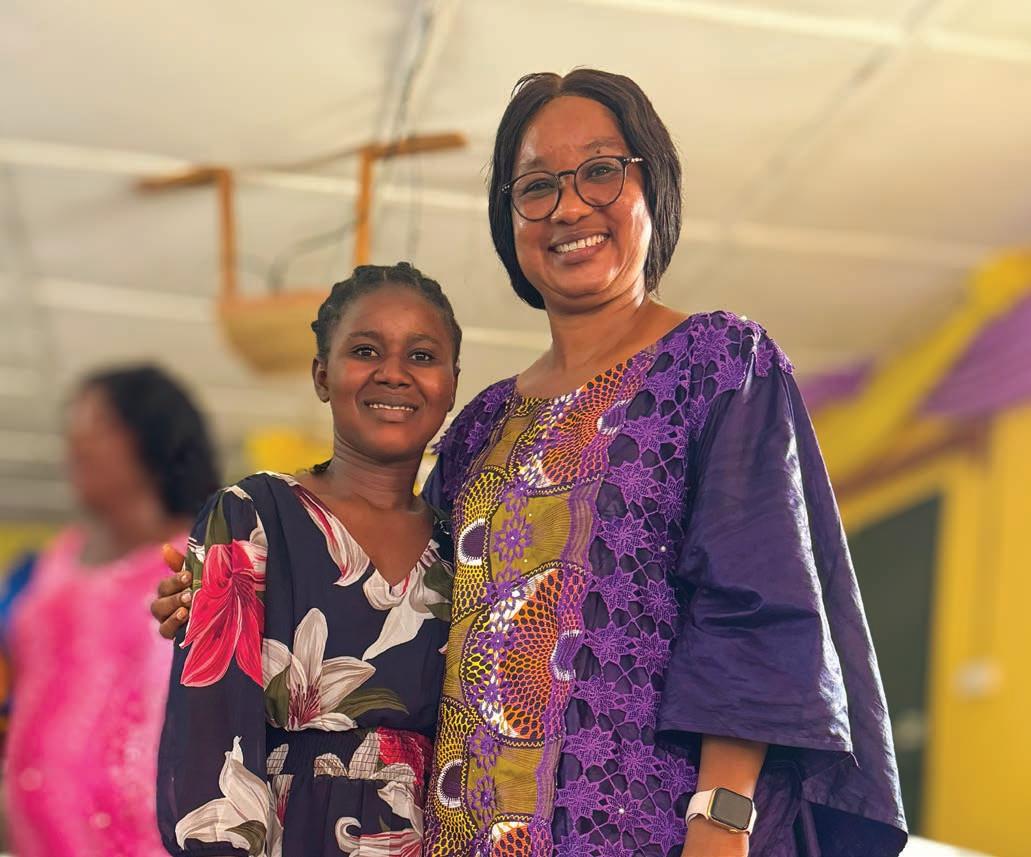
One day, after our project in Guinea had ended and our family had moved to Kono, Fanta called me. “I have been having attacks at night. I tried calling on the name of Prophet Mohammed, but it did not work. It was not until I called on the name of our Lord Jesus that the spirits ran away. Since then, when I am ready to go to bed, I will pray and recite Psalm 23.” I encouraged her to keep it up.
“I have been having attacks at night. I tried calling on the name of Prophet Mohammed but it did not work. It was not until I called on the name of our Lord Jesus that the spirits ran away.
praying, including morning prayers with the whole family. Fanta decided to join us. After the three days, we proceeded with the deliverance. Finally, Zainab was free and recovered, talking and moving, a breakthrough that increased Fanta’s faith.
Sadly, Ramatu falsely accused Fanta of stealing her money and causing many problems. I investigated. Though the accusations were all false, Ramatu used the accusations to get rid of her. Fanta then moved in with her sister who lived in another city.
My husband and I had decided beforehand that the day Fanta left
the house, we would do everything within our power to give her a better life. We asked her sister’s permission for Fanta to come and stay with us. Her sister agreed. We then enrolled Fanta in a local university, where she is doing well and is very happy. Now a baptized Seventh-day Adventist, Fanta continues to live with us.
Please pray for Fanta and others like her who are orphaned in spirit, seeking truth.
Editor's Note: Pastor Reynolds and his family are now volunteer missionary candidates for the Animists of Central Africa Project.

FRED, ISATTA, FREDRICK, EMMANUEL, PATRICIA & FLORENCE COKER (Kono Project)
Fanta and Isatta celebrate after Fanta's baptism.
BY VANIUS DIAS
Discovering the TRUTH
“Do you mean that it is all in the Bible; it’s not the foreigner who wants to change us but God?”
Pastor, excuse me, but let me see if I understand. Do you mean that everything I’ve heard so far about white people wanting to enslave us, destroying our culture, and changing our practices is not like that at all? Do you mean that it is all in the Bible; it’s not the foreigner who wants to change us but God? He wants to transform our mentality according to His Word? Why has no one ever explained this to me?”
A few months ago, I met a young taxi driver in GuineaBissau named Chris, and we became good friends. He had already had some contact with Christianity, but he expressed a desire to learn more about the Bible, and so we began studying. Every Monday, Chris comes to my house, we have lunch together and then we study the Word of God. We have made many discoveries about God’s plan for this young man’s life.
One of the difficulties we face in presenting the Word of God to people in Guinea-Bissau is culture. In general, Guineans believe that the things we say and teach are from the “white culture,” things that make no sense to them. Sometimes, Guineans even say that evangelization is a way of enslaving them again. Unfortunately, Chris and many other people think this way.
During one study, we talked about the Ten Commandments and their implications for our lives, relationships, practices and customs. I began to show Chris how living in harmony with the commandments can be beneficial for us in all aspects — social, family, spiritual, economic and more. During the study, I noticed that he was thoughtful and even uncomfortable, and it wasn’t long before Chris politely interrupted me and asked to speak, impressing me with his questions about God’s biblical transformation versus man’s attempt to assimilate.
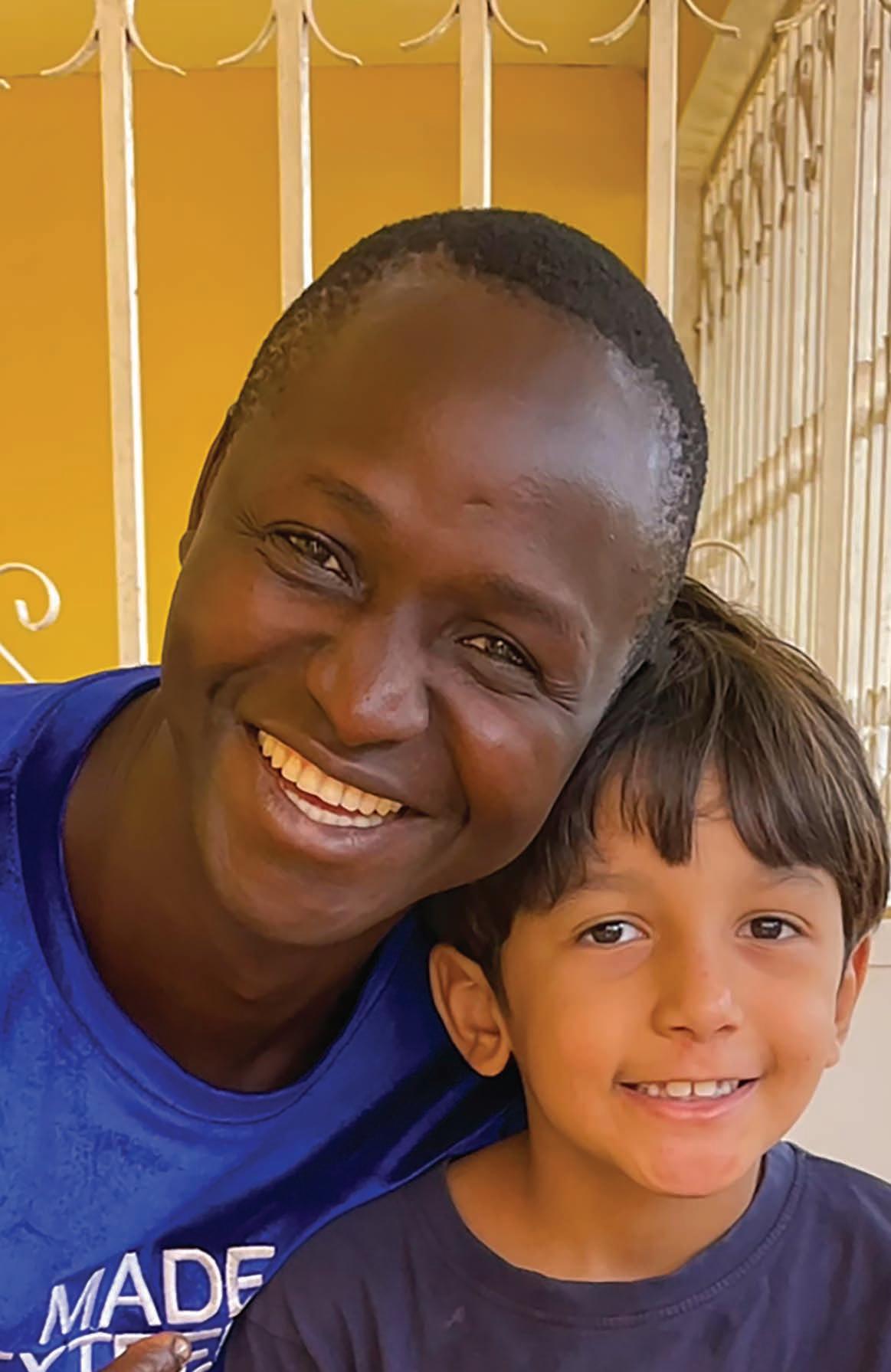
In response, I said, “Chris, let’s read John 8:32. It says, ‘And you shall know the truth, and the truth shall make you free.’” His eyes filled with tears. He was finding freedom in the Word of God.
Chris is attending church regularly and is already involved in many activities. We hope that he will soon be baptized, learn even more about the true biblical message and share it with others who need freedom.
There are still many people, like Chris, who need to be rescued by the everlasting gospel, and you can be a channel of blessings to make this happen. Join us in this spectacular work of reaching people and planting churches.

VANIUS & ELISABETE DIAS (Bissau Project, Launched 2021)
Hope in the Lord
BY EVE WYLER
Years ago, at vacation Bible school, my children enthusiastically sang these words: “My hope is in the Lord; I belong to Him. He will never let me go-o-o-o. My hope is in the Lord; I’ll depend on Him. My hope is in the Lord.” Their happy, upbeat singing lifted spirits and inspired faith. But when life seems easy, how deeply do we mean such words? It is during trials and testing that we truly discover where our hope lies.
This past year, our family has been given such an opportunity—one I never imagined facing. Unexpected events in the field have impacted us for much of this time, challenging us to put our trust fully in God. For Samuel, it has meant conducting daily Bible studies with men of other faiths under extremely difficult conditions, steadily and faithfully leading others to a greater understanding of truth. For me, it has meant rising each morning with a grateful heart, choosing to worship even when tempted to offer prayers of demand and desperation. For our children, it has meant embracing each day with resilience and joy, even when circumstances were less than ideal.
Our family’s experience this past year on the front lines of the great controversy between Christ and
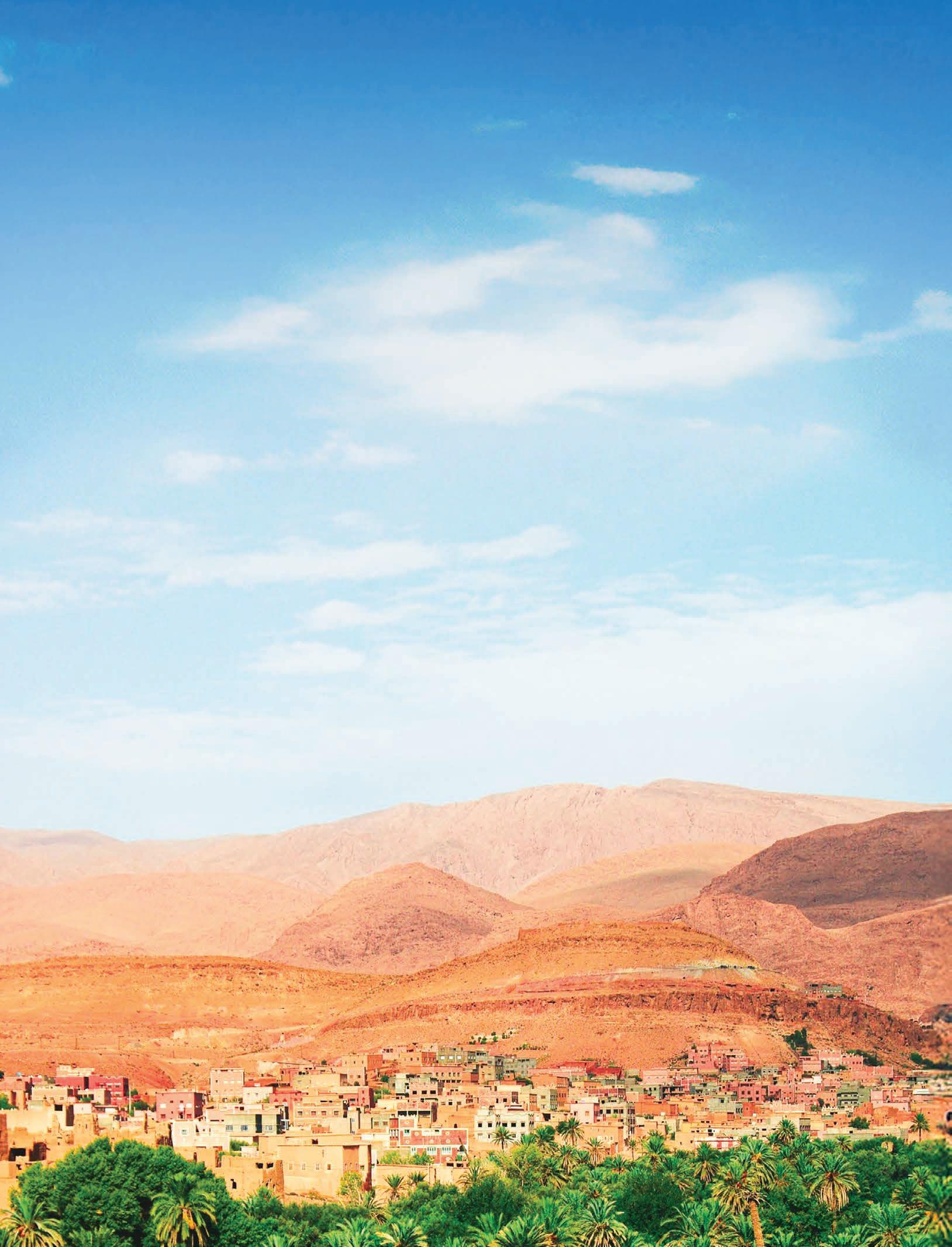
Satan has been one of the hardest experiences we have endured. Yet, I can still declare: My hope is in the Lord. This is not a testament to our great faith; if anything, this time has shown us how much we still need to grow. Rather, it speaks to God’s unwavering faithfulness. He has revealed Himself in ways I would never have seen without this trial, sweetening what could have been an unbearably bitter journey.
For example, God led us to the perfect home, confirming it in a way that felt almost audible to me. He provided unexpected funds just when we needed them most, easing the burden of unplanned moving costs. Time and again, friends and family have reached out with words of encouragement or prayers, often on days when I felt most discouraged. These moments of grace have been a balm, reminding us that God’s provision and care are constant.
I have hope that our time of testing will be over by the time you read this. Until then, we remain grateful for the prayers and support of so many. Your care has lifted us in ways you may never fully know. We deeply thank you from our hearts.
SAMUEL & EVE WYLER
(Muslims of N. Africa Project, launched 2022)
Discipleship and Deliverance
BY VANIUS DIAS
The spiritual fight in the mission field is deeper and more far-reaching than anything we can imagine. God wants to save as many as possible. Meanwhile, the devil is inflicting on people as much pain, suffering and death as he can. A lot of people in Guinea-Bissau are victims of Satan’s attacks, especially when they desire to give their lives to Jesus. We go to great efforts to show Jesus to people, but the devil also is making efforts to turn these people from Christ. Our hope and assurance is to know that God is the Champion in this conflict.
During our furlough in the United States, I received a WhatsApp message from a young man who is studying in our Bible class in Guinea-Bissau. “Pastor, please help me, pray for me. I am having terrible dreams. I can’t sleep. Please help me.” The spiritual pressure is very intense. That is why many give up on following Jesus. They are terrified of evil actions, which, in some cases, lead to illnesses, material losses and even death.
I promised the young man that I would pray and guided him to read the Bible and go to church. After that, I called Vanilson, one of our local leaders on the Geba Animists of Guinea-Bissau Project. I asked Vanilson to go

to this young man’s house, pray with him and show him God’s promises in the Bible, how Jesus loves him and is able to destroy evil forces. Vanilson followed through.
A few days later, the young man sent me a new message. “Thank you for your prayers and our conversation. I am really happy now, and I am sure that God is freeing me from the evil forces. I was very happy to receive Vanilson in my house. It was special for me. Thank you!”
Local members and leaders can be a powerful tool when they are trained and guided.
From this event, we see two important points. Firstly, local members and leaders can be a powerful tool when they are trained and guided. It is gratifying to see disciplemaking producing fruits and promoting the growth of God’s kingdom. Praise be the Lord for that miracle, for Vanilson’s life and for many others who are working for Christ in Guinea-Bissau. The second point is that many are experiencing the liberating power of God in their lives. We have seen His incomparable power with our own eyes. The evil chains of bondage can never win against our awesome God!
“I am convinced that neither death nor life, neither angels nor demons, neither the present nor the future, nor any powers, neither height nor depth, nor anything else in all creation, will be able to separate us from the love of God that is in Christ Jesus our Lord” (Romans 8:38-39).
These words of the apostle Paul are true and show us that we cannot stop; we cannot give up. Let us go forward, for God the Father, the Holy Spirit and the Son are working!
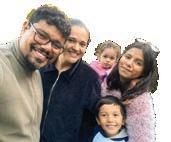
VANIUS & ELISABETE DIAS (Guinea-Bissau Project, launched
2021)

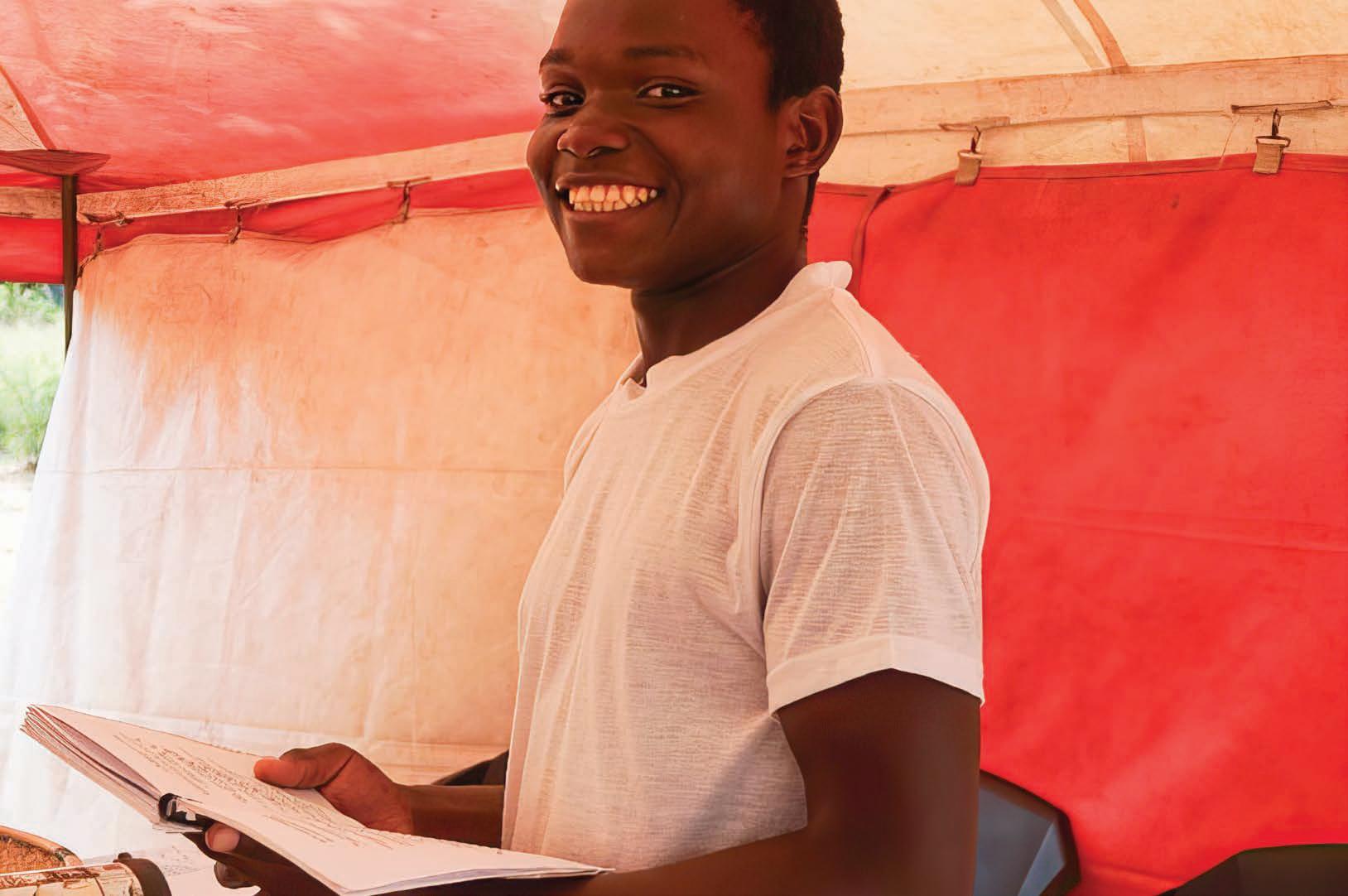
BY GEOVAN & DANIELE MACHU
How One Study Changed My Life Journey of the Curious Youth
The sun was already burning brightly in Nhamaxaxa when Alexandre, a teenager with a restless look and quick steps, saw movement at his grandmother’s house. There were young strangers, carrying Bibles and smiling easily, gathered in the living room with his cousins, engaged in conversations that seemed too serious for him. He frowned, curious. What are these young people doing here? he wondered. Unable to resist the provocation, he went inside.
“Hey, cousin!” Erica called, waving for him to come closer.
“May I know what you two are arguing about so much?” Alexandre asked, not trying to disguise his challenging tone.
“Sure, Alexandre. Come sit here with us,” replied one of the young men without losing his smile. “We are studying the Bible and learning some lessons about Jesus’ love and His care for us. Why don’t you stay and listen for a while?”
Without much choice, Alexandre settled down, determined to observe. He had heard about Jesus, but his life had never been marked by a genuine spiritual experience. On
the contrary, from a very early age, his path seemed to be surrounded by pain and rebellion. He and his brothers were initially abandoned by both parents. Later the boys lived for a time in his father’s new house with a stepmother who always made it clear how much she despised the boys.
The hostile environment led them to flee and seek refuge in their father’s old house, on the same plot of land where their grandmother lived. There they survived alone, hiding themselves during the day, going hungry much of the time and lying to their grandmother to get
something to eat, saying they had not been given food to eat at home.
Eventually, people found out, and their father learned of their whereabouts. They ran away again, sleeping at the school for two nights until they were found and taken in by their grandmother, who cried when she discovered what they had been through.
Alexandre was still dealing with
spoke about God intrigued him.
The study ended, but the youths returned the next day, and Alexandre was even more curious. They talked about things he had never understood before, such as the true church and the meaning of the Sabbath. On the third day, the group invited him to be baptized. He hesitated. I was baptized when I was a child, he
At 14, Alexandre was immersed in a lifestyle of excess. He drank and stayed out all night, following the example of his brothers and friends.
the environment of animistic practices that dominated his family. He began to help his older brother, a healer, and became involved in the rituals. “I played drums and danced in the ceremonies; it seemed like fun,” Alexandre said. He thought it helped protect him from anybody putting a spell on him through a witch doctor, a common fear in this culture.
At 14, Alexandre was immersed in a lifestyle of excess. He drank and stayed out all night, following the example of his brothers and friends. To not be called a fool, he gave in to pressure and sought to prove his masculinity in ways that only distanced him from peace.
Now, as he listened to the young people talk about the Bible, the rebellious and curious teenager began to feel something different. He had vaguely known some Bible stories from the shows he watched on television about Jesus and the apostles, but they were just entertainment for him. However, that morning, the study stirred his heart. The seriousness and love with which these young people
thought. Then as the young people explained that biblical baptism was a conscious act of surrender through immersion, he committed to re-baptism.
Back home, the pressure began to mount. Friends and family tried to dissuade him, insisting that he had already been baptized and that he did not need to repeat the ritual. His grandmother, worried, said that this was nonsense, that God did not require it. Alexandre was confused, but something in his heart told him that this was the right step. He and his cousin decided that if no one came to pick them up on Saturday, they would give up. However, on Saturday morning, youths were at the door, ready to take them to camp.
When Alexandre emerged from the water, he felt a profound peace. It was as if, for the first time, he had left behind the pain of a lonely and rebellious childhood. There, he felt welcomed by God, who seemed to promise him a future of purpose and hope.
The challenges continued after
his baptism. At church, he learned that some changes were necessary, including in his diet. Determined, he chose to follow biblical guidelines and gave up pork, shellfish and alcoholic beverages. This caused tension at home, and his grandmother, upset, criticized him, saying that these rules were excessive. But Alexandre, firm, responded that he was only seeking what God wanted for him.
Over time, his family realized the seriousness of his decision, and even his friends, who had previously mocked him, began to respect his choice. They even began to call him “pastor,” joking about his dedication, but Alexandre took it as a compliment. He knew that his life had changed, and it was all thanks to the young people who had come to his house to talk about Jesus.
“If it weren’t for them, I would still be lost, believing that my protection came from empty rituals and the wrong friends,” he reflected.
Today, Alexandre is a young man who is active in preaching the gospel and is grateful and firm in his faith. “I know that God has always taken care of me, even in the most difficult times. Now, it is my mission to bring this same message of hope to others.”
“No, in all these things we are more than conquerors through him who loved us” (Romans 8:37).

GEOVAN & DANIELE MACHÚ AFM-Brazil Career Missionaries (Tonga Project)
BY DANIELE MACHÚ

Then you must divide the assets!” her parents said.
“That won’t happen!” I made it clear. “If you want, I can give up the chairs!”
My name is Pedro. I was born in 1990. My parents separated when I was only three, and my mother gave me to my grandparents because she wanted to forget the life she had and start a new family.
I grew up undisciplined, making my grandparents' lives a lot of work.

grandmother gave me to my father, who had already started his own family by that time.
From Cursed to Blessed
At 13, I decided to drop out of school. I wasn’t doing well; I didn’t understand most of the subjects. I decided to become a bricklayer like my father.
When I was 19, I met my first ‘wife.’ She was my older brother’s wife before me, but he beat her a lot, so she moved back into her parents’ house. That’s when I started going out with her. After two years, I went to introduce myself to her parents; that’s how they found out that we were having a relationship. By that time, I had been working as a bricklayer for six years. My father said I was old enough to have my own home and family, so he gave me a piece of land on which to build a house. That is where we had our first child.
After three years, I discovered that she was cheating on me. I was furious.
How could she do this every time I went out to work? I kicked her out, and she returned to her parents. Yet I still loved her.
After living with her parents for a year, she asked if she could come back. She said she regretted cheating on me, and I decided to believe that she wouldn’t do it again. But she did, and I returned her to her parents’ house. This time, I explained the situation, that she was being disloyal, and that I needed to clear my name. They accepted her.
I lived alone for a year. She had a child with another man. Yet I took her back a second time. I still loved her. We lived together for three years. Once again, I discovered that she was cheating on me. When I returned her to her parents’ house again, they were quite unhappy with the situation.
“This is the third time this has happened,” they said.
“It’s your daughter who isn’t serious about marriage,” I explained.
“If you come back to get her, you will have to get married officially.”
“That’s not going to happen. I don’t want her anymore. I’m fed up,” I said.
“Then you should divide the assets!” her parents said.
“That’s not going to happen!” I made it clear. “If you want, I can give up the chairs.”
At the end of the year, I started dating my current wife. After a while, we married. But as soon as we started living together, demonic occurrences began.
After several episodes and going to see healers, she still had not gotten better. My father advised me to return her to her parents because she wasn’t going to improve, and we were tired of wasting money. I called her father and talked to him about returning her. He sent me a considerable amount of money to continue consultations, but nothing worked.
I began searching for an answer to my wife’s problems and met Francisco while I was building a wall in the region where he lived. He really liked
my work and hired me to build a house for him. We soon became friends. During this time, my wife’s condition only worsened, and we continued to consult witch doctors.
I started asking Francisco to pay me in installments so I could take my wife to the healers. At first, Francisco didn’t question it, but after a while, he thought it was strange and asked why I was taking the money little by little. I explained what my wife was going through and that I needed money for the consultations.
Then he challenged me.
“I want you to come to church with me every Saturday for a month. If this ‘illness’ doesn’t go away, you can go on with your life.
I was quite interested when I heard this, but the one who had to accept it was my wife. She was the one who needed help, not me. I decided that if she accepted, we would go.
I talked to my wife on a Wednesday, the same day a witch doctor was scheduled to come to our house to take care of her. I presented the proposal and suggested we postpone the visit until Saturday, but my wife didn’t want to wait. I understood her; these crises were horrible.
The witch doctor came, practiced her craft and took our money, but my wife only worsened.
Saturday came, but my wife still didn’t want to go to church because she had heard several stories about it. She was reluctant to accept the proposal until she was convinced that we were just wasting money on these sorcerers and that they couldn’t help her.
“I don’t want to go to that church. But we have tried everything and have no other options,” she decided.
When we arrived, we were introduced to the pastor and elder.
“We can’t help. The only one who can help you is God. We are going to advise you to start a journey of prayer.”
I was amazed. I expected them to give me an amulet or something. When
The witch doctor came, practiced her craft and took our money, but my wife only worsened.
we got home, my wife and I talked.
“Will this work?” I asked her.
“I don’t know. Let’s try,” she said. We started to pray.
Sometime later, Brother Francisco brought Brother Fernando to study the Bible with me and my wife. Surprisingly, the only times of the day that my wife did not have attacks of demonic possession were during our Bible studies and prayer.
When we noticed this, and Brother Fernando made the appeal for us to be baptized, we accepted. We had learned that only Jesus could free our family from the control of demons.
Today, we are Seventh-day Adventists and witnesses of the grace and power of God. I can happily say that my wife no longer has those horrible attacks. God worked a miracle in our lives and family, and I am no longer cursed. I am blessed.
Pedro and his wife are leaders of our church in Mozambique.
Except for Fernando, our Bible worker’s name, all others have been changed to protect their identities.
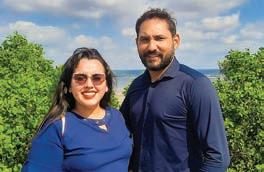
& DANIELE MACHÚ AFM-Brazil Career Missionaries (Tonga
GEOVAN
Project)

BY VERNAL ROSEVAL
TWO PATHS, ONE BATTLE:
The
Tale
of
Defiance and Deliverance in Spiritual Warfare
Ilove to play my guitar and teach Christian songs in English during the French-language Bible studies the school principal gives to the students. They enjoy the music and singing, and usually everyone participates.
Well, not everyone. On the first day, one of our teenage students had her head down during the Bible lesson. The principal went over to check on her and to ask if he could pray for her. She refused his offer. Sensing she needed the prayer, he began doing so anyway to exorcise the demon residing in her. At that point, she dropped to the floor, shaking.
Demon possession is not uncommon in this land. I was told that one day, ten girls arrived at school possessed. I have also learned that exorcising demons is a tiring ordeal. I think about how we sometimes pray our shy prayers and ask God for help, but when these people pray in the name of Jesus for
a demon to come out, they use a lot of energy and force. Demons flee when they hear Jesus’ name. I quickly realized that the time may come when I have to assist if no one else is around, so I work to keep myself connected to God so I am fit for Him to supply me with His power should that time arise.
Depending on where a person is located or what situation they are in, when that person is possessed, the demon may manifest itself in various ways to fit the context. Here, demon possession tends to occur more frequently with girls. I have yet to hear of any males at school being possessed. Girls will often complain of a headache or say that they are tired. Then, if you offer to pray for the girl, she may reject the prayer. When you do pray for them, the girl or girls fall to the ground and start shaking. They start screaming when you call upon Jesus’ name.
When the teacher began casting the
Demon possession is not uncommon in this land. I was told that one day, ten girls arrived at school possessed.
demon out of the girl whose head was down, she tried to escape after her initial screams. Although she was skinny, it took three or four teenage boys to hold her down. At one point, one of the boys complained because of the force with which she squeezed his hand. “Leave me alone,” she said as the teacher was praying for her. She didn’t seem to want deliverance. Eventually, the teenage boys had to carry her out of the classroom so others could continue to pray for her elsewhere while we continued our Bible class. By God’s grace, she came back later and seemed to be better.
The following week, during the same
class, another girl was exhibiting similar behavior. The teacher started praying for her, and she dropped to the floor. However, she did not try to run away. She just lay on the ground shaking as the principal prayed for her. Eventually, other teenage boys had to remove her from class so someone else could pray for her in another room, allowing us to continue class.
When we later talked to the second girl about what happened, she told us that she had found a hair barrette on the ground, picked it up and took it home. From that point on, a demon harassed her. In Africa, you don’t pick random things up from the ground; people attach curses to them. (For a child of God, we don’t have to fear, but we must still exercise prudence.)
“Do you want deliverance?” we asked her.
“Yes!” she replied, and we told her to bring us the barrette. We also gave her a Bible verse to write, which she agreed to do and keep.
When we gave the same offer to the first girl, she was simply not interested. She said that she was practicing witchcraft to keep her family safe. Fortunately, both girls are in the Bible club, where they can continue to learn about Jesus and the ongoing great controversy. Here in this community, I have learned that deliverance is a stepby-step process. Please keep these girls, the Bible club and the school in your prayers.

VERNAL ROSEVAL (Kono of Sierra Leone Project)
GET INVOLVED
PRAY for our missionaries, for their protection, health, faith, and courage. Pray for their families and for the advancement of God’s work in the places where they serve. Also, pray for the people who have not yet heard the good news, who live in darkness without knowing the One who is the Light of the World. Ask God to prepare their hearts and to raise up an army of workers who will go to them with the message of salvation.
GIVE financially to support our mission. You may not serve as a missionary on a project, but you can become our partner by helping us send more workers into the mission field. Visit www.afmeu.org/give to donate online or initiate a bank transfer using the following details:
Libra Internet Bank:
Name: Asociația Adventist Frontier Missions Europe
RON Account: RO39BREL0002003623490100
EURO Account: RO55BREL0002003623490200
USD Account: RO71BREL0002003623490300
SWIFT Code: BRELROBUXXX
Banca Transilvania:
Name: Asociația Adventist Frontier Missions Europe
RON Account: RO18BTRLRONCRT0676277901
EURO Account: RO65BTRLEURCRT0676277901
USD Account: RO69BTRLUSDCRT0676277901
SWIFT Code: BTRLRO22
Regardless of how you choose to give, we would like to keep in touch with you, so please provide us with contact details. Thank you for your generosity!
GO to those who do not have access to the Gospel and be the light that leads them to Jesus. He has promised to be with you every step of the way.
If you want to be a missionary, start the application process at www.afmeu.org/go or write to us at office@afmeu.org.


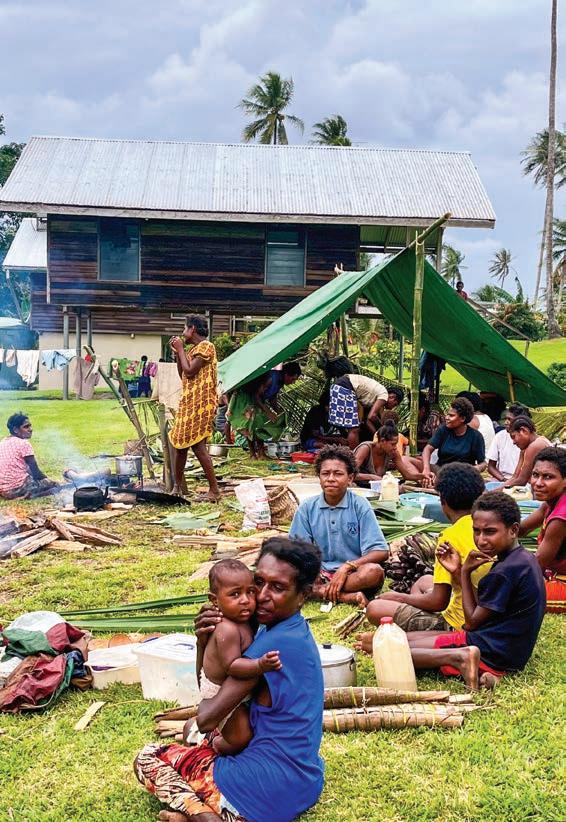
Several hundred people from seven different villages gathered for the farewell.
BY STEPHEN ERICKSON
Farewell to the Gogodala


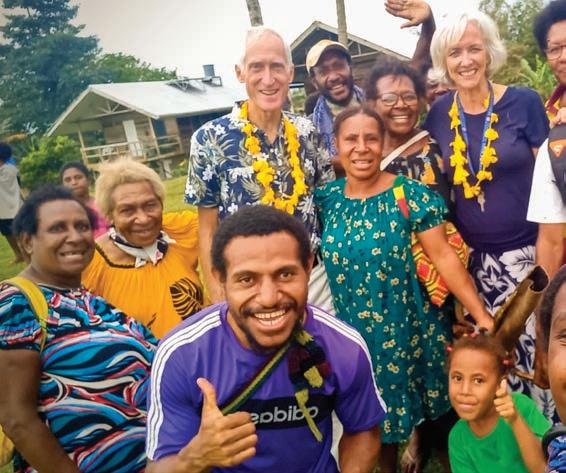
After 17 years of working with the Gogodala, Laurie and I are transitioning into full-time field directing roles with AFM. We have decided to make our base in the U.S. close to the AFM office and our children and grandchildren. We will miss our Gogodala friends and are happy that the Sliger family can be there to carry the work even further.
The most difficult thing about being a missionary, in my opinion, is having to say goodbye too often. It seemed that once we launched as missionaries, we were constantly saying “hi” and “goodbye.” We had to leave loved ones back home to fly halfway around the world. But we had the same difficult time parting with people on the other end when leaving for our furloughs. Goodbyes, especially on furloughs, came too soon as we parted company with many of our dear friends and family who supported our work. I am really looking forward to heaven when we will no longer have to say goodbye.
A church group leads out in song.


Asking a favor of someone can actually be a way of showing that you care about them — the one who lacks makes a request from the one who has.
It was beautiful one morning, about a month before we were scheduled to leave the village. The sun was already heating things up. The coconut palms were swaying in the breeze when I heard a knock on our door. It was our church elder. “Steve, we want to plan a farewell program for you!” he exclaimed. “I and the other elders will write the program and you type it and print it for us. But you tell us what you want to have in it.”
To people who grew up in Western society, it might seem rather odd that a person wanting to honor another by arranging a farewell program for them would solicit the help of the recipients. However, in patronage cultures such as the one we have been working in, it is a way of life. We do not usually think of it this way, but asking a favor of someone can actually be a way of showing that you care about them — the one who lacks makes a request from the one who has.
We, the missionaries, had the computer, printer and electricity, which our elder did not have. He wanted a nice-looking brochure, not a handwritten one. Laurie typed the program, printed it out and showed it to the elder for his approval before printing out multiple copies. “Okay, now, can you put your pictures at the top of the page?” he responded. It was nice of him to think of us, but who is doing whom a favor with this program? I mused.
This type of exchange has precedence in the Bible, though. One example can be found in the story about the woman at the well (John 4). Jesus didn’t have a water pot, so He asked the Samaritan woman to get Him a drink. Then, later in the conversation, the woman asked Jesus for the living water that He alone possessed and that she realized she needed. It was a friendly exchange between the two parties and nearly a whole village was won to Christ as a result.
We finally got the program to his liking and posted one on the training center door. The weekend drew near, and we were busy with sales and getting rid of clothes and other personal items. People started arriving in their large, carved-out wooden canoes on Thursday. By the time of the farewell program on Sunday, several hundred
people from seven different villages had gathered on the lawn of our mission ground. They came from near and far, camping out at our training center grounds to express their appreciation to us for our years of service. It truly was touching!
From a podium and sound system set up on the veranda of the training center, speeches were amplified so everyone could hear. Members from the various church groups sang songs. Our Kewa church group sang a song that brought tears to our eyes. “Goodbye, Mom and Dad. You have brought the good news, and now you are leaving us with the word of God.”
After that followed three or four village leaders and church elders who gave their talks of appreciation and recounted their special memories of us; it was very kind. The master of ceremonies then invited us to the microphone to say a few words. How do you give final words to people whom you have known and worked closely with for so many years? We preferred that our goodbye would not be final but rather a “See you later.” We encouraged people to remember the lessons God had taught them while we were there.
Just as the program came to an end, rain began to fall, almost as if nature itself was mourning our departure. But people put up umbrellas and stayed around to talk with us and showered us with gifts of bilums (colorful, hand-made string bags) and beautiful flower leis. I even received a hand-woven hat! A group of three ladies came to me after the program with tears in their eyes to apologize for the ill-treatment some of their family members had given us while we were building our house many years ago.
Borrowing the words from a Shakespearean play, “Parting is such sweet sorrow,” we could see that in spite of the added work of helping to put together a farewell program, it did our hearts good to see the expressions of love and gratitude from so many people. It also brought a pleasant closure to our Gogodala experience. Thank you to those who have prayed for us and our work and given of your means so the gospel can reach the Gogodala. May the dream God gave me before we went to PNG, of seeing many Gogodala in heaven, become a reality.
Note: The Ericksons will continue with AFM, overseeing some mission projects in other parts of the world. Your continued support will be greatly appreciated.

STEPHEN & LAURIE ERICKSON (Gogodala
Project, launched 2007)
The Precious Faith of Ukà Kulipang
BY LEONDA GEORGE

Huddled on the sheetless hospital bed, tubes in her side and nose and an oxygen mask over her face lay my Older Sister (Ukà) Kulipang. Sick with tuberculosis and pneumothorax, which caused a collapsed lung, my sister was suffering. A tiny woman, she made for a small bundle on the
bed. She looked miserable as Kent and I watched her for a moment before entering the room. But when we approached her bed, she looked up and rewarded our visit with a big smile.
It was challenging to have a real conversation with her because of the oxygen mask, but we were able
to bring her comfort. Rearranging her pillow so she would lay more comfortably, propping up her knees to take the strain off her lower back, and stroking her sweaty head and hair, I wanted her to know I loved her.
She kept saying, “I want to go home.” I understood. A hospital is such a foreign place, but even more so for one who was born, raised and then reared her own family to adulthood in the remote jungle highlands. But going home wasn’t an option in her condition, not just yet.
As we started singing to soothe her, she visibly relaxed and then thoroughly enjoyed hearing one of Pastor Kent’s Bible Stories, reminding her of her home in heaven and the great reunion day with Jesus and our loved ones.
Kulipang is a sister in Christ. Baptized almost five years ago, she has been the only member of a still relatively young church plant in Amrang. She has zealously encouraged her adult children and grandchildren to attend church and small group, and some are taking Bible studies. We pray that one day soon, they will join the ranks of the redeemed.
As I continued to visit Kulipang, I witnessed her health vacillate. One day, upon entering her room, I was horrified. I didn’t recognize her. The air was not going out the tubes in her side properly, and her whole body was filling up with air just under the skin! Her granddaughter was valiantly trying to press air out of the tissues, but it was almost a losing battle. Kulipang was miserable. I came in another day, and she was having intense seizures, causing excruciating muscle spasms. It was horrific to watch and to know how uncomfortable and frightened she was. Breathing was difficult. As we waited the much-too-long minutes
for the nurse to bring the needed medication, I could only stroke her forehead, pray aloud, and, at times, sing to her. I feared she would die during the seizures that returned every few minutes.
Her faith in Jesus was precious to behold, and each time we had worship with her, her body would visibly relax, and peace would come over her face.
At long last, the medication started working, and she relaxed, only to again say, “I want to go home. I don’t
want to die here.” Regrettably, it did become apparent that she would not recover from her condition. We had worship with her again, Kent telling her a story of “Heaven and Homeland,” after which we sang her favorite song, “Maya Menglelkat Siyu,” (“We Have a Redeemer”). Even though she could barely talk, her breaths coming sporadically and shallowly, she was singing along with us through her mask. Her faith in Jesus was precious to behold, and each time we had worship with her, her body would visibly relax, and peace would come over her face.
We were able to arrange a medical flight to take her to her native home and to see her children and grandchildren. She then peacefully
went to sleep in Jesus that night.
Ukà Kulipang, I miss you. Even though we weren’t able to see each other frequently because of the distance between our villages, you were always so happy to see me, as I was happy to see you. I am looking forward to the grand resurrection day, after which we will meet in heaven and, just as we already agreed, be neighbors.

BY AARON JONAS
Dreams, the Web and a Baptism
The Dream Project currently operates in 10 languages, and others are on the horizon. This requires that we operate as a team, running several platforms, creating content, communicating with our readers, translating or proofreading. Some are full-time or part-time workers, while others volunteer.
Workers living in our part of the world recently had the first opportunity to meet and spend a week together in training and fellowship. Together with the founder of this ministry, who inspired us with his many insights, we worked on content meant to help Muslim dreamers get a biblical perspective on what God reveals to them. We also took time to pray for one another and for the people who communicate with us. Almost daily, we shared new dreams that Muslims shared with us that day, asking us to help them understand what they saw. We would share their stories and turn them into fresh training material.
On Sabbath, our leader spoke to local Adventists in two different locations, and we were encouraged to see that people not only want to bring the good news to Muslims, but they are already doing it. Therefore, what
was presented to them was very relevant, and it was not easy for the listeners to let us leave.
The peak of our week together was the baptism of a lady whom we can call Jamila. She is from a Middle Eastern country and became an Adventist through the Dream Project. We now also pray for Jamila’s husband, who is sympathetic but has not yet taken his stand. We trust that they will both shine for Jesus where they live and also in their homeland, where there is no Adventist presence. Can you even imagine being baptized into the family of God, knowing that your entire nation needs to hear the truth that changed your life?
Please pray with us for our new sister Jamila and her husband. Pray for believers who would join with them to tell their homeland that Jesus is coming soon. Pray also that God shows you if there is anything you can do to be part of this noble task.
KENT & LEONDA GEORGE (Palawano Project, launched 1995)
AARON, REBECCA AND DOMINIC JONAS (Dream Project, launched 2013)
BY CAMILLE KITCHING
Introducing the Kitchings

I have always wanted to be a missionary, and Nakwan (Kwan) has always wanted to be a Pastor. God has given us the opportunity to do both.
Kwan grew up in New York. He knew God had called him to the ministry from the tender age of ten. As a child, he wrote sermons and preached to his teddy bears. By 16, he was preaching at youth services. In his early 20s, he found the Adventist message and was baptized into the Seventh-day Adventist church. Shortly after, he enrolled at Oakwood University to study theology.
I grew up in a Seventh-day Adventist family in Minnesota with solid roots in Jamaica. As a small child, I loved reading mission stories and longed to be a missionary. I enrolled at Oakwood University and found like-minded individuals in a campus ministry doing local and overseas mission work.
In my last semester at Oakwood, I was introduced to AFM through Oakwood’s Theological Forum Team, of which Kwan was the chaplain. I soon began taking steps toward becoming a student missionary and accepted a call to serve as a student missionary in the Republic of Guinea, West Africa.
he finished his last year at Oakwood, and then we would start our lives together.
After serving as a missionary in Guinea, I was certain about my calling to become a full-time missionary. However, Kwan’s aspirations to be a pastor did not align with mission work. Despite this, God wanted us to marry, and we entrusted our lives to him. We were married in June 2015 and started a family soon after. A few years later, we accepted a call to pastoral ministry.
However, six years into ministry, Kwan developed a speaking disorder that forced us to step away from pastoral ministry. We prayed and fasted about what God would have us do next, and in December of 2023, God began showing us the need to serve as career missionaries in Japan.

That semester, Kwan and I started a courtship that quickly led to an engagement. We decided that I would serve for one year as a missionary while
It started with a documentary, which led to a deep dive into Japanese culture, resulting in the realization that Japan is facing several crises. Young people are no longer getting married or having children, the suicide rate is alarming, and because of the breakdown of the family structure, many people are dying alone, never having heard the name of Jesus. On top of that, only one percent of the population is Christian, making the archipelago the world’s second-largest unreached people group. Knowing this, we were ecstatic when AFM invited us to accept a call to serve as career missionaries in Japan.
NAKWAN & CAMILLE KITCHING Volunteer Missionary Candidates (Japanese Project)
The Haunting Silence
BY JOHN HOLBROOK

Editor’s note: You can read the first article about Ronald in the previous issue of Adventist Frontiers.

Do you see that patch of jungle across the river?” the elder asked Ronald. “That’s our cemetery where we sacrifice and do witchcraft. If your God is as powerful as you say, you can live there beside the graves.”
Ronald had been elated when the elder had allowed him to live near the village. For months, he had been trying to gain access to the Bangon tribe but had been rebuffed. Finally, he could get started.
Now, several months later, Ronald wasn’t so excited. The elder had grudgingly allowed him to live in the cemetery, but he had made no effort to allay the people’s fears. The villagers avoided him like the plague, abandoning the village every time they saw him coming across the river.
One morning, Ronald wandered through the jungle and approached the village from a different direction. Peering through the trees, he saw a group of children playing in the dirt. Their cheerful laughter brought a smile to his face. He was so lonely. If only the kids would let him join their game. The children were so engrossed in their play that they didn’t notice the stranger approaching. As Ronald squatted down next to them, they looked up. Instantly, their smiles of glee turned to screams of terror, and they fled into the jungle.
Returning to his makeshift shelter of bamboo and plastic bags, Ronald pulled a small mirror out of his backpack. “Why do they treat me like this?” he asked himself, gazing sadly at his reflection. “Do I really look like a ghost?”
That night, sleep came slowly. When he finally dozed off, he found himself in a horrible nightmare. Spirits crept out of the jungle and into Ronald’s hut. Grabbing him by the arms, they dragged him to the riverbank.
“No!” Ronald shouted. “Let me go!” The demons laughed as they spun him round and round while mocking him. Finally, after having their fun, they faded back to the jungle. Ronald stood on the sand in the pale moonlight, waiting to wake up. He shook his head and pinched his cheeks, but the dream didn’t end. Finally, he realized that he hadn’t been dreaming. The horror had really happened!
Exhausted, he stumbled back to his shelter to lie down, remembering how God had allowed Job to be harassed by Satan to test him. After enduring the test, though, God had blessed him beyond his imagination. “Lord,” he prayed quietly. “I know the demons would love to kill me or force me to leave the Bangon in ignorance of your love and salvation. Once again, though, I renew my commitment to you. No matter what happens, I will not leave until these people know and understand Your love.”
Every day, missionaries like Ronald endure loneliness, persecution, and deprivation in order to bring Jesus’ love to the most unreached people in the world. Won’t you partner with us and support the work that the Lord has called us to do?
JOHN HOLBROOK (Tawbuid Project, launched 2011)
BY CARLY TIRADO
Popcorn and a Prayer

Round and round went the popcorn kernels as I turned the pot handle. Soon, the satisfying sound of popping invited two little toddler boys to come and watch. Swish went the popcorn as it poured into a bowl. After a dusting of seasoning and a shake of the lidded bowl, our snack was ready. But this time, I portioned it into baggies to share.
River and Osiah helped me fill the motorbike basket with the weightless bags of goodies. Our family headed out on our two motos (we have outgrown just one) to visit friends down the dirt road in our village. We visited a couple of friendly neighbors and shared popcorn with their children, who are always thrilled to have a salty snack to nibble on. The chickens are equally happy to be nearby for the kernels that miss the mouth. After chatting, we still had popcorn to share, so we waved goodbye and kept driving.
Warm smiles soon welcomed us to turn into Rafat’s front yard. We sat and visited while the sun went down. His two young children happily snacked on popcorn and shared bites with River and Osiah. By the time we left, I knew my two little toddler boys had very hungry tummies, and we had better head home. The moto basket still had four bags of popcorn, however, and I wasn’t going to let it go to waste.
“Let’s just stop anywhere and give these to some children,” I said to Eric.
As we drove, I heard little voices holler, “Hello!” “Hello!” from the left and right, but I could never spot whose friendly voices greeted us in the dim light of dusk. I prayed, God, lead us to the right house to share our popcorn. Maybe we can meet someone new. Please help us stop at just the right house. Amen.
I soon saw a group of jolly youths frolicking in their front yard, so
I pulled over. A beautiful, kindlooking woman smiled at us and came down the steps of her stilted home. I handed popcorn to her children. Four bags for four children. Perfect!
She asked the customary, “Where are you coming from?” meaning, “What’s up?”
“Oh, just out to visit people,” I responded. Then she eagerly asked me all about where I was from, where I live, how long I’ve lived here, how many children I have — the usual. She was so friendly and interested. I wanted to stay and chat longer, but the growl of hungry tummies urged me to get home. “See you next time!” I said.
Back at the house, I told Eric how friendly she was. “Come to think of it, I can’t remember exactly where her house was.” Since it was dark, I hadn’t noticed unique features about her house to imprint it in my memory.
I drove slowly on subsequent passes down the road, comparing houses to my shadowy memory of what they looked like. I watched for the children, but the village was full of children of the same size, and I wasn’t sure. I wanted to visit my new friend, but now I had forgotten where she lived.
One day, she showed up at my house, her four children piled on a moto. It took me a minute to realize this was the new friend I was looking for, Zara.
Since then, I have taken my children to visit nearly every day. On my first visit, Zara asked, “Does Christianity have a book like the Quran?”
Sinegugu stands with her voice students.
“Yes,” I said. “The Torat Injil” (how Muslims refer to the Old and New Testaments).
“Do you have one?” she said curiously.
“Yes, do you want to read it?”
“Yeah, I’ve never seen one. I want to look at it.”
The next time I went, I took her the book of Mark, translated into Khmer. “This is a book from the Injil,” I said. “You can have it to read.”
Zara likes to ask me questions about Christianity, always following up with, “Yeah, Islam is the same. We are so similar.” I long to tell her that Jesus is not just a prophet with extraordinary healing powers and that Islam and Christianity are not, in fact, the same. Her openness and curiosity, however, are what we deem green lights when assessing interest in the Bible. She is receptive and always open to talking about spiritual things.
While the children make sand castles in her front yard, I share with her glimpses of the beautiful character of the God we know and love, a God of mercy, forgiveness, justice and personal relationship. Looking back, I see how God answered my prayer and saved those four bags of popcorn for four little children whose mom wanted to talk about God. I am praying for this relationship to deepen and for how to introduce Zara to the gospel.
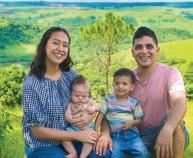
ERIC, CARLY, RIVER & OSIAH TIRADO
(Great River Project, launched 2019)
BY ELIJAH WILLIAMS
Instrumental Healing
Micah works in a market, but his true passion is playing a local instrument. We had asked him to teach our boys how to play it.
I was surprised when he told me he wanted to sell his instrument, so I went to see if it was worth buying.
As I looked at the instrument, Micah told me why he was selling it. “My wife had a cancerous tumor removed last year. She needs to have it checked this week. I’ve sold everything else to pay for her treatments. If I can’t sell my instrument, we won’t be able to check it.”
The instrument had been broken and glued back together. “It still works,” Micah explained. “I play it at weddings and other parties.”
I decided not to buy it and left, asking God’s healing mercies for Micah’s wife. At home, I felt impressed to help Micah by offering money given to help those in the community.
I went back to Micah’s house and offered him the amount he needed, making it clear that it was a gift, not a loan. Micah told me that after I had decided not to buy the instrument, he went into his house and wept with his wife. He gratefully agreed to receive the gift but wanted to give me his instrument as a gift. I told him to keep it for his side job.
Before giving him the gift, I told him how Jesus healed many people while on earth, how Jesus is now in heaven and how God will answer prayers for healing offered in Jesus’ name. I prayed for his wife in Jesus’ name.
Later, he texted me: “We went to the hospital. Your prayers for my wife have been answered! They didn’t find any new cancer. Thank you so much!”
“Praise God!” I replied.
ELIJAH, BETH, THOMAS & JAMES WILLIAMS (Reach-Out, launched 2005)
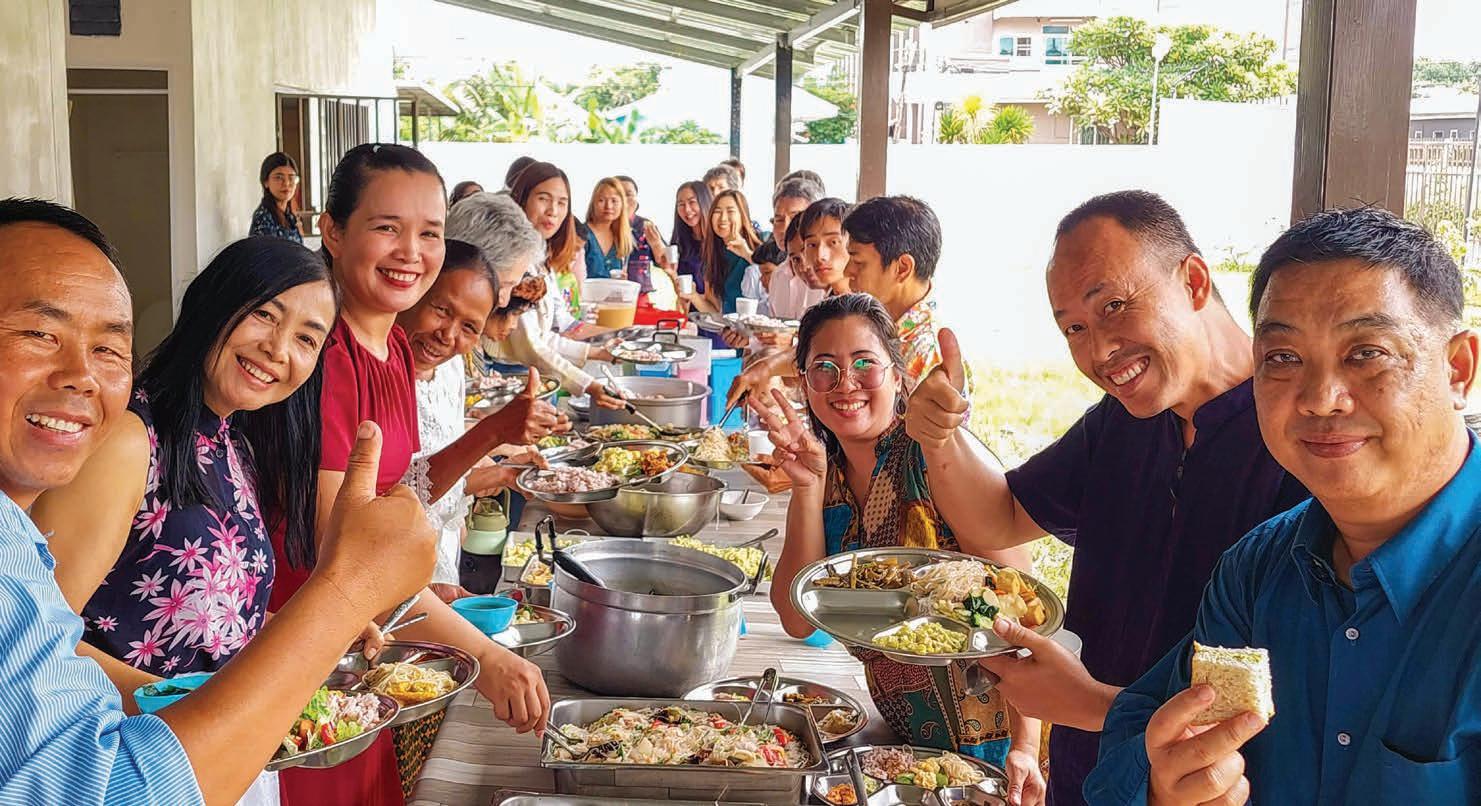
BY CHRISTOPHER SORENSEN
FOLLOWING the MACEDONIAN CALLS
Flipped upside down! That’s how our lives felt 22 years ago as we accepted God’s call through AFM to serve the Northern Khmer people in the Surin province of Thailand.
Many of you joined us in that mission, becoming our financial and prayer partners. Over those first 10 years or so, we saw a beautiful and vibrant SDA Church congregation and New Life Radio ministry established by God’s grace and our close partnership with other missionaries and our local SDA mission-employed pastor. The radio ministry continues today.
In 2012, we answered a Macedonian call like that in Acts 16:6-10 to “come over and help” establish the work in another provincial capital city: Khon Kaen. By God’s grace, a small rental house church grew into a large and beautiful congregation with its own property, church and music school ministry now owned and managed by the local SDA mission.
Over the last 11 years, a team of top-notch career and student missionaries through AFM and IYMC (Institute of Young Musicians for Christ) have greatly assisted by lending their musical, medical, practical and witnessing skills to the work and helped to disciple youth and adults into musicians and church members.
Though the work of evangelizing Khon Kaen is ongoing, and we could spend the rest of our lives serving in this city, we see that the church and
WE NOW FEEL FREE AND READY TO ANSWER ANOTHER MACEDONIAN CALL TO HELP EVANGELIZE
THE SOUTHERN THAI
PROVINCE OF SURAT THANI.
school have matured to the point that they will continue growing and expanding. So we now feel free and ready to answer another Macedonian call to help evangelize the Southern Thai province of Surat Thani.
A few years ago, the Thailand Adventist Mission asked AFM to send missionaries to that provincial capital city. Through your help, AFM sent Brian and Duang Wilson, who are there translating many of Sister White’s books and nurturing different small groups. Because of the size of the work and the
Khon Kaen SDA church members and guests gather for potluck.
limits of their time and energy, they have requested partners.
We have served without partners in the past and can appreciate what they are feeling. Over the last couple of years, we have prayerfully considered joining them. We and the Thailand Adventist Mission feel the time has come to make this transition.
We feel insufficient for this work. We know the new subculture and dialect will stretch us. Many SDA pastors have told us that reaching Southern Thais is not easy compared with other people groups in Thailand. But we have never been sufficient in and of ourselves to do anything for God’s work in Thailand. It has been God’s sufficiency. We trust Him to continue being our sufficiency in Surat Thani.
Would you please consider joining us on this next mission assignment? With God’s help and the continued partnership and prayers of God’s people, we expect to see another miracle of evangelism and church planting in the province of Surat Thani beginning in February 2025.
Gaining More Than You Lose

After graduating (Sol with a nursing degree and me as a pastor), it was clear that we had to be missionaries in places unreached by the gospel. We quit our jobs and sold everything, even without a call yet.
Even so, it was not our intention to stray from God’s plan for our lives or to go into missions stubbornly. It became particularly hard when we received that call.
“Hello, Cristian. We want you to come to our Conference and work with us as a pastor here in Argentina. You have a few days to decide, or we will look for someone else.”
Was that what God wanted for us? I loved pastoral work, but what about our sensing a call to be missionaries?
Still our answer was ready. “Thank you for the opportunity, but we believe God has called us to serve as missionaries to unreached countries.” We didn’t even know about AFM yet.
After we hung up, my wife and I struggled. We needed to know we had made the right decision and were not rejecting God’s call.
We contacted a godly friend with much experience. His advice went straight to our hearts: “The decision you just made will cause you to lose many things, but it will also bring you other gains. If God placed the call to be a missionary in your heart, you will gain more than you lose.”
That was seven years ago.

I’m not a pastor in my country, and my wife no longer works in the hospital. We left family and other things behind, but none of that compares to all we have gained by serving the unreached: myself a pastor to the beautiful Pnong people, my wife developing her talents at the school, and together witnessing the first Adventist church-planting movement in Pnong history.
Choosing to be a missionary can feel like a huge sacrifice. It is. Only those who experience it know it’s totally worth it. “You gain much more than you lose.”
We would not trade it for anything. Thank you, Jesus.
CRISTIAN & SOLANGE JARA (Pnong Project, launched 2020)
CHRISTOPHER, SHANNON, ALINA, JESHUA, SELAH & ARIA SORENSEN (Central Thai, launched 2003)

BY LEONDA GEORGE
Ribika
Beautiful, slender and graceful, Ribika is one of my near neighbors. The mother of an almost three-year-old, she also keeps busy assisting at the clinic and managing their crops.
Ribika has a heart for God. Living in a village quite a distance from Kemantian, she was baptized into another religion at seven but has now realized she really did not know God or much about Him or the Bible. She remembers being shown a video of the crucifixion and resurrection as a young thirdgrader in a public school, and that made a lasting impression on her, though she did not understand it.
With her intense desire to know Jesus, she decided it would be best to marry an Adventist and live in Kemantian, where she could learn at home and church. So she married a young man and was promptly disappointed because, even though he had learned many stories in school and church, he
was unconverted and unbaptized. She came to me in tears one day.
“I thought I was marrying a Christian, but he is not. He isn’t even always very kind. I’ve begged him to tell me what he knows because I know he does know, but he refuses. How can I learn more about how to be a Christian?”
Happily, I informed her that I was more than willing to study with her and teach her and that we would continue to pray for her husband and his family. As the studies began, Ribika was an eager student. She began having worship with her young son and teaching him Bible stories, inviting her husband to join her, but he continued to refuse.
When we were urgently summoned back to the States with our son Christopher’s devastating diagnosis, the Bible studies were left with another staff member to continue guiding and training Ribika. Upon my return to Kemantian months later, she
eagerly came to me, “I am so glad you are back! When can we start Bible studies again?” She then informed me that her studies had been neglected for one reason or another, but she was happy I was back to really explain things to her.
Because I knew I had limited time in Kemantian this trip, I suggested that we have a study every night, seven nights a week for the following six weeks, instead of once a week. As we began studying, she said, “I so want to be baptized!” Happy with her enthusiasm, I suggested that we set a date and earnestly prepare before I was to leave again. She was so happy that she cried, “Really? I’ve been wanting this for so long!”
Ribika's baptism is still a few weeks away, but her interview by the elders is this next Sabbath. We are covering ground quickly, and she has an absorbent mind. Her heart for her family to know Jesus, to train her son, and her unceasing prayers for her husband’s conversion touch

my heart. Oh the joy of young love! I hope she never loses it, though her trials will increase.
We are discussing ways that I can continue to disciple her during the times I am back in the U.S. Kent and I will be coming and going for a while as we support Christopher, his family and our other children. We plan on returning to Kemantian as frequently as we can to continue to grow the capability of our local leaders and church members. Follow up is vital and best done by those with whom they have already established a relationship.
Ribika lives quite a distance away from her family because though it is tradition for the man to move to the woman’s village, Ribika wanted to be in Kemantian. God has thus ordained that she be here to learn of Him and to receive the Holy Spirit, who will enable her to reach her family and others as well. Another missionary is being born! Please remember her in your prayers as she continues to grow in grace.

KENT & LEONDA GEORGE (Palawano Project, launched 1995)
BY BRIAN WILSON
PURPOSEFUL PRAYER
Arecent inconvenience reinforced the fact that we have a prayer-answering God! While we pray daily for many aspects of our project and the individuals we are working with, we sometimes forget to pray to meet new people. Recently, I began praying for God to connect us with someone new to whom we could minister. God answered sooner than I expected.
Our new team member Jeffrey Cheung recently moved into a house near the market to better facilitate his friendship evangelism. We asked the landlord to install mosquito screens on all bedroom windows. However, we found them on only some windows when Jeffrey moved in. This left him in a conundrum—either befriend the mosquitoes or sacrifice cross-ventilation. After some negotiation, the landlord agreed to complete the screening.
I was appointed as the babysitter for the house to await the screen installation while Duang took Jeffrey to run errands. Sitting in a hot, empty house without furnishings, I felt I was wasting my time. I could be home translating, I mused. However, this mundane task turned into an unexpected opportunity as it was God’s way of answering our prayer to meet someone new.
Friendly from the get-go, Khun A told me his life story as he installed the screens, pausing occasionally to show me pictures on his phone. “Last year, my father and only son died sixteen days apart. My father died of a heart complication, and my son hanged himself out of grief.” Khun A continued sharing until he completed the installation and left to pick up his niece from kindergarten. On his way home from school, he stopped by with his niece to introduce her to me.
We believe meeting Khun A is a direct answer to our prayers for new ministry opportunities. To nurture this connection, we plan to hire him to install screens at the house we are renting. As God has answered our prayer to connect with someone new, we now pray He will grow this connection until He brings Khun A into a saving relationship with Jesus.

BRIAN & DUANG WILSON (Buddhists of Southern Thailand Project, launched 2022)
BY ALISHA TAYLOR
Drunk on the Trail
“Be careful up here. There is a drunk man on the trail,” hollered back the man from the village as he passed us for the second time. He had passed us going down the trail when we were coming up and now was passing us again while carrying to his house the cooking gas that he had purchased—all at 70 years of age.
Lang and Teeka (the midwives) didn’t reply to the announcement. But when they reached the drunk man, neither did they step over him and continue going as the man ahead of us on the trail had done. They didn’t leave the drunk man on the trail either. They woke him up. They helped him stand, and they helped him walk down the trail. They found and cut a walking stick for him because he was having trouble with his balance. When he was unable to carry his things, they carried them for him, even though they were already
loaded down with backpacks, bags of food and umbrellas. They calmed him down a couple of times when he saw his bags in their hands and mistakenly started yelling that they were stealing his things. They helped him walk for a long time until a man from his village reached us on the trail and helped him the rest of the way home.
Their actions were a beautiful picture of what Jesus would have done: stopping to help someone in need no matter who they were or what sins they had committed. According to Jesus, in the judgment, “The righteous will answer him saying, ‘Lord, when did we see you hungry and feed you or thirsty and give you drink? And when did we see you a stranger and welcome you, or
naked and clothe you? And when did we see you sick or in prison and visit you?’ And the King will answer them, ‘Truly I say to you, as you did it to one of the least of these my brothers, you did it to me’” (Matthew 25:37-40).
Let us find ourselves always on the side of grace and mercy.
ALISHA TAYLOR (Himadri Project)

Lang and Teeka cross one of the betterconstructed bridges in the area.
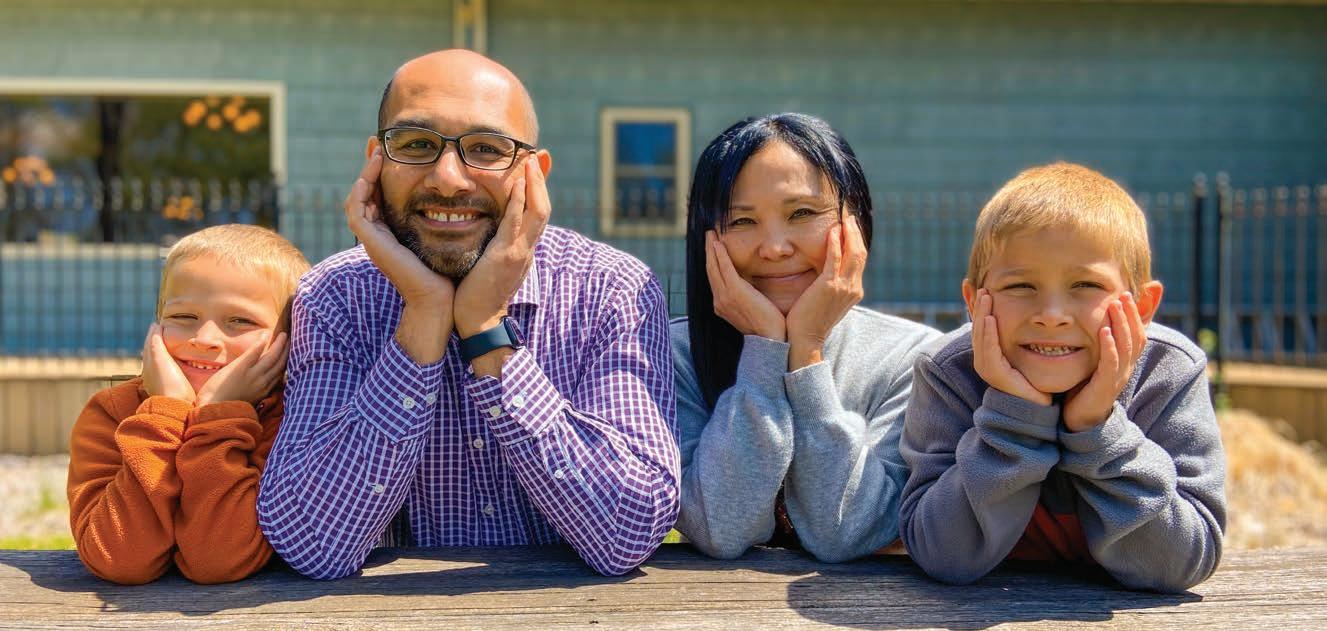
BY ADRIAN SOLIS
Japan Bound: Introducing the Solis Family
I, Adrian Solis, was born and raised in Amarillo, Texas. My life forever changed when I moved to Las Cruces, New Mexico. There, a Seventhday Adventist traveling evangelist conducted a Bible prophecy seminar when I was 19. For the first time, I fully heard the gospel of Jesus and the three angels’ messages. At the end of the seminar, I was baptized into the Adventist church, and God soon laid the ministry upon my heart. I then attended Southwestern Adventist University and began serving as a missionary in Japan in 2009.
My wife Sumako was born and raised in Okinawa, Japan, to a Buddhist family who knew nothing about Jesus. At 20, a major life crisis led her to an Adventist church. God showed Sumako the life-changing gospel of Jesus Christ, and she accepted Him as her personal Savior.
While we were both living in Japan, God introduced us to each other and we were married in 2013. We then moved to Texas, where I had accepted a call to pastoral ministry. However, God deeply impressed us that one day, not knowing how or when, we would return to the mission field of Japan.
Sumako began her journey through the Adventist college system and beyond before we met, earning degrees in Education and Mental Health. Since then, God has led her to serve others as a teacher, mental health counselor, partner in pastoral ministry and mother. God blessed us with two wonderful boys, Michael, 8, and Caden, 7, whom we adopted in 2020.
After I completed a Master of Arts in Pastoral Ministry from Andrew’s University in 2020, I began praying and contemplating our family’s return to Japan as church planters and missionaries.
Also that year, a missionary program on 3ABN caught my attention. As I watched the show about an American family who had gone to Asia to plant a church, I felt a deep conviction: That’s what God wants


us to do in Japan!
With excitement, I went home to tell Sumako that I believed God wanted us to church plant in Japan. She didn’t share my enthusiasm and began asking how this would work and how we would earn a living. I didn’t have answers, and the conversation didn’t end well. Sumako was not convinced this idea was from God.
I prayed that God would make it clear to both Sumako and me that if God wanted us to be churchplanting missionaries in Japan, He would give her that conviction. That Sabbath, she approached me after church. “I have to show you something,” she said, giving me a recent edition of Mission 360 Magazine containing an article about a church-planting project in Tokyo, Japan. “My heart burned inside me as I read the article,” she said.
After much prayer and fasting, our entire family strongly felt the call of God with the conviction that now was the time to labor as disciple-makers in the mission field of Japan. Through a series of events, God led us to Adventist Frontier Missions, where we will train to reach the unreached people of Japan with the message of Jesus Christ and to start a church-planting movement.
After pastoring for 13 years, I am excited about this ministry transition. Since Sumako is Japanese and understands what it is like to know nothing of Jesus and the Bible, and then accept and believe both, she can truly help our family reach her people for Christ. We also see how God is also calling our two young boys to be missionaries.
Please prayerfully consider joining the Japan project as a monthly supporter and prayer warrior.
& SUMAKO SOLIS Volunteer Missionary Candidates, (Japanese Project)
ADRIAN

BY JEFFREY CHEUNG
Receive to Give
It is surreal that I am finally on a foreign mission field for the first time. This past June, I was still waking up to another day of not living out the best that God has for me. It took a long time to discern His voice, muffled by my own and Satan’s.
Now, I wake up each day eager to run to the local morning market and tell everybody about Jesus.
Well, not exactly. God wants me here in Southern Thailand. He clearly opened the way and provided for me to come. But how many of us are receiving all that He desires to give? And should I straightaway approach every person on the street, and knock on a few hundred doors a day?
First of all, I can’t
do that because I would need to speak Thai. A few hours a day are allocated towards language learning, and more opportunities to build relationships will present themselves as proficiency increases.
If I can speak to the Thai people, and approach them—still, is something missing?
How about time spent with God in prayer and devotion? Am I abiding in His presence? Am I having victory over sin? Do I have the Holy Spirit?

When John “Praying” Hyde began mission work in India, he put time with God before learning Punjabi. I am inspired to do the same and believe it will bring success. How much more shall our heavenly Father give the Holy Spirit to them that ask Him?
“Christ represents the petitioner as asking that he may give again. He must obtain
the bread, else he cannot supply the necessities of a weary, belated wayfarer. . . . In like manner, the disciples were to seek blessings from God. In the feeding of the multitude and in the sermon on the bread from heaven, Christ had opened to them their work as His representatives. They were to give the bread of life to the people. He who had appointed their work, saw how often their faith would be tried. Often they would be thrown into unexpected positions, and would realize their human insufficiency. Souls that were hungering for the bread of life would come to them, and they would feel themselves to be destitute and helpless. They must receive spiritual food, or they would have nothing to impart. . . . Christ directs them to the source of supply” (Christ’s Object Lessons 140)
I am eager to give the bread of life to others, but am I prepared to go out? Do I have anything

to impart? Not if Christ is not in me. And I dare not work tirelessly in the field by my own wisdom and strength.
Unlike the selfish neighbor, God delights to give to us if we but ask. “He longs to grant the requests of those who come unto Him in faith. He gives to us that we may minister to others and thus become like Himself” (Christ’s Object Lessons 141.1).
I am encouraged by the fact that because I want to receive from God in order to give, He will most assuredly provide.
In mid-August, I arrived to work with the Wilsons, career missionaries in Southern Thailand, but the real work is Christ being completed in me. Daily surrender is necessary. The good news is that God will do that work in me if I let Him. Christ’s work in Southern Thailand or anywhere else will flourish as a result.
I humbly request your prayer. Reach out if you wish to correspond. I would love that.


GOD BROUGHT US TOGETHER
I had just finished eating dinner at a restaurant with my two boys when I heard something interesting as we were walking out. A couple was speaking to each other in Japanese. I remembered a little from my time in Japan.
I approached them by speaking what Japanese I could remember. They were surprised to hear me speaking their language, and we immediately became friends, quickly switching to English as their English was much better than my Japanese. I learned that they were from the Tokyo metro area and that the husband was assigned an accounting position in Houston by his Japanese company; he and his family had been living in Texas for over a year. We chatted for a while and then exchanged contact information before leaving.
I eventually invited them to bring their son to our church’s Adventurer program on Sabbath afternoons. They started bringing him quite regularly. I will never forget seeing their 7-year-old son reading from the Bible for the first time in his life during a game they were playing during Adventurers. They, like most Japanese, had never attended a Christian church, read the Bible or had Christian friends. This was all new to them. But I knew God brought us together.
Shintoism and Buddhism remain the predominant forms of religion in Japan, but for most Japanese, these are more about tradition rather than a genuine belief. Today, between 30-39 percent of the population identify as atheist. Some say Japan is the most religious yet atheist country in the world.
We believe God has called our family to Japan to help take the gospel there before the second coming of Jesus. We are only one small family, but we serve a big God who loves the Japanese and will show us how to reach more families like my new friends. Please prayerfully consider joining our support team and helping us reach more precious Japanese people for Jesus.
— Adrian Solis
JEFFREY
CHEUNG (Buddhists of Southern
Thailand Project)
SHORT-TERM MISSIONARY
ADRIAN & SUMAKO SOLIS Volunteer Missionary Candidates (Japanese Project)

Persecuted for Searching for the Truth
George’s story took place in a country where people are certain their religion is the only true one, are confident their religious leaders guide them on the right path and are convinced that the cross is a sacred object that one must venerate or else be cursed.
In the Transcaucasia region, many are thirsty for the truth, no matter how difficult it is to search for, find and accept. George’s story, which follows, took place in a country where people are certain their religion is the only true one, are confident their religious leaders guide them on the right path and are convinced that the cross is a sacred object that one must venerate or else be cursed. Here, Bibles are often printed in an archaic language that regular people do not understand. Instead, people use the Bible as a holy amulet to protect them from evil inside their homes.

“I was a very devoted believer, used to attend church every Sunday, celebrated all holidays, revered the saints and often confessed my sins to the priest. My family and I were living our lives following the rules and beliefs of our religion in every aspect until I started to compare our lives to those of the religious leaders. They were not living up to the standards they were preaching, and I felt my world fall apart. I realized that I spent my entire life living in a lie that included not just me but everyone around me. So I decided to talk to my friend. He said he was also uncomfortable with all the traditional stories and

How could I have never heard about it?
“I was amazed at finding the truth, and to continue, I needed a Bible, one without apocryphal books and small enough that I could carry it with me.
The day arrived when I received my new Bible. It became my treasure. I started to read it every day—until something happened. My parents
they would never hide it from me again. After this occasion, I spent three more weeks searching for my Bible because I hid it so well that I could not remember where.”
George’s story and others similar to his are happening now in the Transcaucasia region; the people are desperate for the truth, and it is our responsibility to go and preach to them. My wife and I decided to dedicate our lives to sharing the
“From that moment, my life completely changed. I discovered that God can hear me and wants to talk to me and that I could talk to Him in my own language, not only by saying prayers in a language I couldn’t understand.
that he had started studying the Bible with a group of friends; he invited me to join him. I hesitated at the beginning; however, a voice inside insistently told me, ‘Go and join them,’ and I did.
“From that moment, my life completely changed. I discovered that God can hear me and wants to talk to me and that I could talk to Him in my own language, not only by saying prayers in a language I couldn’t understand. One day, we studied about the Holy Day. Of course, I thought that was Sunday. However, I found out it was the seventh-day Sabbath and that the church fathers used to keep it holy!
discovered I was studying the Bible. I was in trouble. They got so angry that I cannot describe it. For them, I was betraying our country and family. My dad took my Bible to burn it, but because a cross was on the cover, he couldn’t damage it and not be cursed, so he hid it.
“Somehow, other people discovered my situation, and I ended up losing my job. But nothing would stop me because God was with me, protecting and guiding me. The only thing I wanted was my Bible back. I started to search every corner of my house. I found it and hid it from my parents so
gospel among the Georgians. Please prayerfully consider partnering with us in this project of reaching the unreached of Georgia. Thank you to those who have donated generously for the purchase of 5,000 Georgian Bibles.

FILIPE & ISABELA GOMEZ (Georgian Project)

LONGING FOR A FATHER
BY JOHN SMITH
You have listened to us for a long time, John. What do you think about all these things?”
We were making a condolence visit. One of Mary’s relatives passed away the previous week in a village that was a good six-hour drive from us. The deceased was buried on the same day, which is common. When you can’t attend a funeral, it is customary to visit the close relatives to offer condolences, meaning you can visit several people’s homes.
One of our visits was to Ramazan. His name is a popular one; the same word as the month of fasting in Islam, which we call Ramadan in English. Ramazan, in his mid-60s and an active farmer, lives in yet another village near that of the deceased. He is the biological son of the deceased but was raised by a couple who could have no children of their own. Ramazan’s father and mother gave Ramazan to the couple from birth.
“My father didn’t leave me any part of his estate like the other children. Nothing! Whenever he did something, he always did it with Güzin and Hüseyin (his daughter and son-in-law).” Ramazan spoke for about an hour, giving examples of how his father was not a father to him. He never talked about his adoptive parents at all.
“You have listened to us for a long
time, John. What do you think about all these things?”
“When I was 12, my father left my mother with three teenage sons and married another woman. I rarely saw him. He was not there to teach me how to tie a neck-tie or guide me in my career choice. My mother worked two jobs so that our standard of living would not fall. I picked up responsibilities around the home that my father might have done. While doing a chore one day, I considered my lot. I was taught that there is no God. What law was there that said a father must do this or that? I decided that no one owed me anything. If someone gave me anything, I would be thankful because they are not indebted to me.
“I had friends with solid families whose father or mother gave advice or discipline or took them on outings. I was at once jealous of my friends, yet grateful that they often included me on one of their outings. I got to go places and do things that I couldn’t have otherwise done.
“I liked sports and remember vividly as our coaches would bark instructions. 'Are you going to let this guy beat you?’ they would say, challenging us to perform our best. While sweat poured down our faces during three-a-day practices in August, they would say,
'Boys, if you want to be a success in life, you need to work hard.’
“Even in my teenage years, it did not escape my attention that my friends’ parents and my coaches were fathers to me. I was surrounded by fathers. Looking back, I see that God provided these for me if I chose to see it. Yet I maintained a root of bitterness toward my own father.
“Then I became a believer. Everything changed. Jesus said, ‘For if ye forgive men their trespasses, your heavenly Father will also forgive you: But if ye forgive not men their trespasses, neither will your Father forgive your trespasses.’ Jesus did not say that you forgive only when those who have hurt you ask for forgiveness. He said that you forgive them outright. Does this mean there is no justice? No. Their deeds are a matter between themselves and God. Jesus tells me to let it go. But this is not natural.
“I needed God to give me the grace to forgive. I cannot do this by myself. So, I asked God to give me a forgiving heart.
“I wrote my father, but I did not ask him to apologize. I asked him to forgive me for my wrong attitude. I was free, so free I felt like I could fly! Jesus’ command to forgive sets us free.”
Ramazan, his wife and the other guests all acknowledged that Jesus’
BY EILEEN CARDONA
“Even in my teenage years, it did not escape my attention that my friends’ parents and my coaches were fathers to me. I was surrounded by fathers.”
words were right.
“I asked my mother once, ‘What was my father’s father like?’ She said he was a cold, loveless man. I realized my father had no example of fatherly love in his life. He could not pass on what he did not possess.”
As we left, I privately encouraged Ramazan to pray to God for a forgiving heart.
I am grateful to God for giving me fathers in my life and for the church, which does the same thing.
“And Jesus answered and said, Verily I say unto you, There is no man that hath left house, or brethren, or sisters, or father, or mother, or wife, or children, or lands, for my sake, and the gospel’s, but he shall receive an hundredfold now in this time, houses, and brethren, and sisters, and mothers, and children, and lands, with persecutions; and in the world to come eternal life” (Mark 10:29-30).
If you are missing a father or mother in your life, you can receive them a hundredfold, now in this time in the church. This is my experience. I have a huge church family and am surrounded by mothers and fathers and sisters and brothers and children.
Forgiveness is divine; it brings freedom to those who practice it.
JOHN & MARY SMITH
(Turkish Project, launched 2004)
GONE WITH THE WIND
Can we change our flight to the day before we plan to fly out?
We asked ourselves this question as we sat at the AFM offices in Michigan. Gabe’s father, Andrew, had been battling cancer for 2 1/2 months. We had already purchased tickets to fly to Orlando that Sunday morning to be with Andrew since he would be turning 76 that day, and we had planned a birthday celebration for him. Something told us to change our flight and leave Sabbath morning instead of Sunday, so we called the airline on Friday and held our breath to hear how much we would have to pay to change our flight.
To my surprise, the lady on the other end of the phone said we bought flex tickets (which we never do) and would only have to pay the $176 difference. So we quickly packed our bags and arranged for an early ride to the airport to fly out at 6:00 a.m. on Sabbath.
When we arrived at Gabe’s parents’ home, we found his father very weak but still communicating. It seemed as if he was just waiting for us to arrive. Gabe was able to spend some precious hours with his father before he passed that evening, just a couple of hours shy of his 76th birthday. Had we ignored that still, small voice and kept our Sunday morning flight, we would have missed seeing his father alive.
Gabe asked his father to accept Jesus as his Lord and Savior after a long life of searching for answers in other religions and theologies. Like the thief on the cross, his father accepted Jesus just hours before passing. We have hope we will see him again in heaven.
That Sabbath, his father just kept asking Gabe to pray for him over and over again, as if he knew he was coming to the end of his life. Gabe’s father had loved to read and always had a book in his hand. The last book he was reading was “Gone With the Wind” which seems so poignant as we think of Psalm 144:4 (GNT), which says, “We are like a puff of wind; our days are like a passing shadow.” These past few months have reminded us that tomorrow is not guaranteed so we should be zealous to share Jesus with others and let us hold tight to the days we have with our loved ones.

The Third Suitcase

When I made it to the boarding gate, flight attendants were randomly asking people to weigh their carry-ons and measuring sizes. I wasn’t surprised. Yet, not once did they ask me.
Amazed, I thought, That was a total answer to prayer! I can’t believe it!
As a field director, I’m required to attend meetings each year. On my last trip, I was asked by another worker if I could bring back a suitcase full of homeschool books and other items for her. I agreed. Under normal circumstances, I’m allowed to take two free checked-in suitcases. However, I expected to pay for the third suitcase.
I contacted the German airline to explain the situation. They told me I had to pay over the counter and could not check in the third suitcase online (which was cheaper). The fee would be $240. So, I called a second time,
hoping I would get a different answer. It came back the same. Because of switching to another airline carrier, I had to pay for the extra luggage at the counter. They told me to also get there early enough to check in. I finally conceded.
That evening, I carefully packed my suitcases and bags so I wouldn’t go over the 23 kilo (50 lb.) limit. I weighed each suitcase more than once to be sure it was on point. I had flown with this German airline before and knew they were very stringent on their baggage policies and would weigh everything. The following day, I weighed the three suitcases again, plus my carry-on bag, so as not to exceed the weight and pay extra.
I arrived at the airport three hours before the scheduled departure and took my wool jacket and water bottle out of my carry-on so they would not count toward the weight. As I waited in line, I prayed silently to get the right officer who wouldn’t be so concerned about luggage weight. A German couple had gone before me, and they had to repack their overweight luggage. Another gentleman in front of me had to pay an extra fee because he had lithium batteries in his carryon.
I finally got called to the counter. It was the same agent that told the German couple to repack their bags. I was still praying. I felt I should be upfront so I told the agent about my attempts to check in my third suitcase
online. It was as if he didn’t hear me. “I must pay at the counter for my third suitcase,” I continued. He just made some grunting noises. Then he told me to put my first bag on the scale. The weight was 25.2 kilos (55.5 lb). I looked again, and sure enough, it was 25.2 kilos. He put the labels on it, handed me the luggage tag, then asked for my second suitcase. It also weighed 25.2 kilos.
By this time, I couldn’t believe it. I put my finger on the scale and started to say that it was overweight when suddenly I heard a voice in my mind saying, “Stop!” I immediately obeyed and didn’t say a word. The agent tagged the second piece, handed me the tag and asked for the third bag. It weighed 22 kilos. I asked the agent another question, which he answered and then waved me on. I stepped away from the counter. A few moments later, I stopped in my tracks and realized that the agent had not asked for a payment or directed me to another counter to pay. I turned to go back and ask him when I got another impression, saying, “Don’t worry about it.” How strange, I thought.

When I made it to the boarding gate, flight attendants were randomly asking people to weigh their carry-ons and measuring sizes. I wasn’t surprised. Yet, not once did they ask me.
I finally boarded the plane and, when I arrived at my destination, collected all three suitcases and met my wife and the worker.
Then I told them my story. In turn, the worker for whom I brought the third suitcase, told me how they had prayed all along that I would not have to pay for that third suitcase. The Lord totally answered that prayer, and I didn’t even know I was a part of it. I can’t believe it!
Friends, it’s so amazing how much God cares for us, even in the seemingly small things in life, such as the third suitcase. As we reflect on this past year, may our hearts take courage and know that we are dear and precious to our Heavenly Father.

Connect to our weekly podcast!
Listen to missionaries sharing their experiences directly from the mission field.
TO OUR PODCAST:
Apple: iTunes Store, iPhone Podcast App Android: Google Music Store, Spotify, Podbean
ALI, NENA, HANA, ORALEE & ASYA NASSAR (Turkish Project, launched 2012)
BY SKY BRIDGER
The Mountain
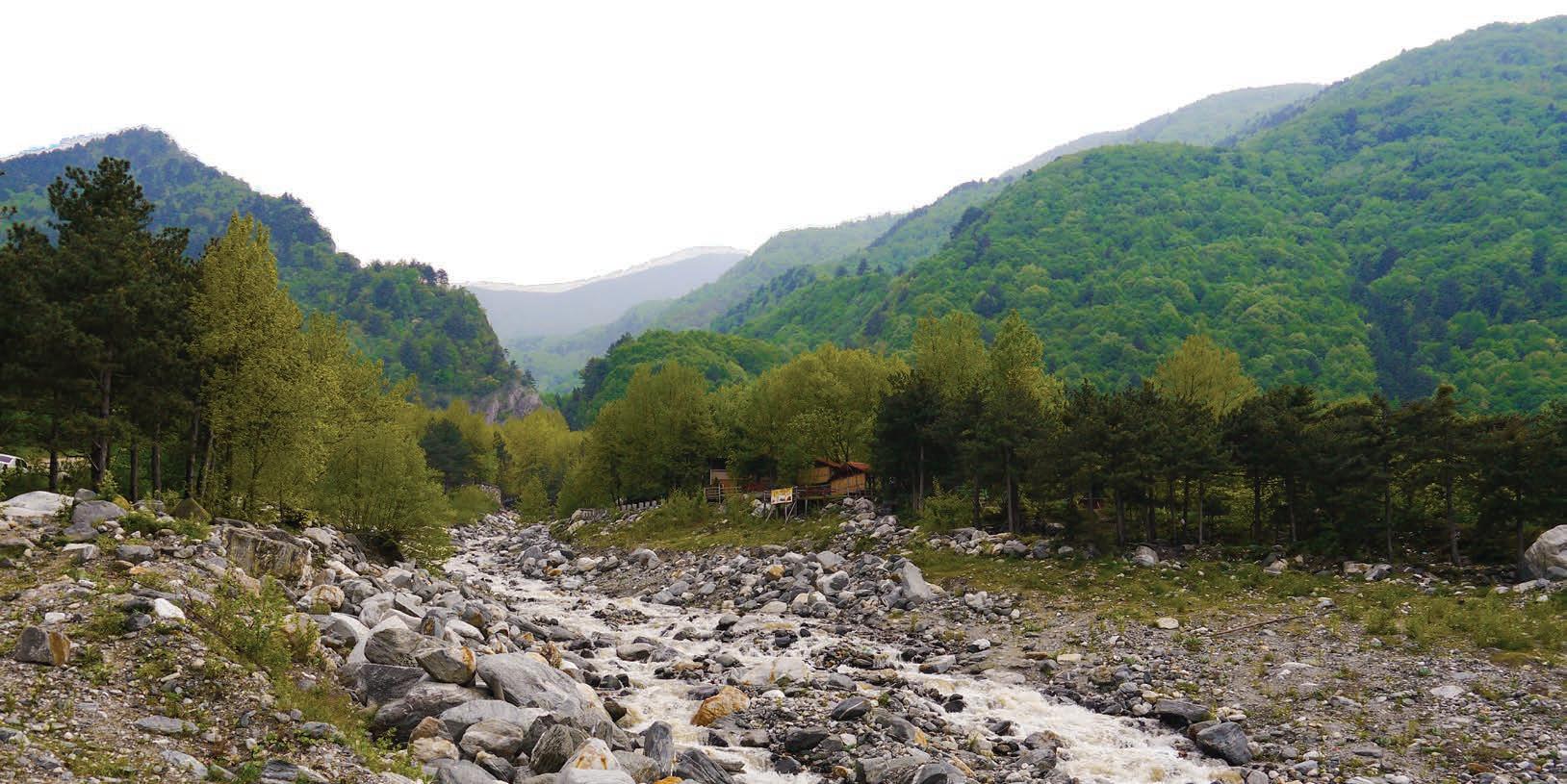
Jacob planned on climbing the mountain with our son Oliver one Sunday. They had made this 9-mile round-trip climb a couple of times in the past, once all the way and once to the halfway mark, or the “small peak” where a small shelter sits.
The younger boys were not happy about being left behind, so as it turned out, we all decided to give it a try. I would turn 43 that day, and while it wasn’t my first idea of a relaxing day, I thought it a good time to see what I was still capable of achieving.
Early that morning, Jacob got a text from our imam neighbor: “Are you still going up the mountain today? May I come?” This brother, a father of four in his late 30s, is usually busy with his mosque duties, but he had set everything aside for the day.
As we climbed the rugged slope, he and Jacob discussed the prophets and the differences and similarities between our scriptures.
Our 6-year-old and 9-year-old were ready to give up 10 minutes into the walk, but with some urging, they got a second wind, and we made it two miles up. The day was incredibly clear, with visibility across the sea, nearly to the Big City.
Though there was ice on the ground, the sun shone warmly, and we didn’t need coats. We were climbing the steepest place, within sight of the first peak, when Jacob’s phone rang. It was the jandarma (police), calling to demand that we come down immediately.
Since the last time Jacob and the boys had hiked, apparently, the authorities began requiring permits to climb the mountain.
It was a disappointing twist to our beautiful day, but it was a possibility we had discussed on the drive up—talking about how plans change, interruptions out of our control sometimes happen, and we have to roll with it. More and more frequently we are finding opportunities hedged in by new rules or exorbitant fees. In spite of disgruntled feelings, we were grateful for the lovely day and the time with our neighbor.
Why has God put our families near each other? Surely, He must have a purpose, even if there doesn’t appear to be any openings on a heart level. Pray for this special family.
JACOB, SKY, ANTHONY, OLIVER, LITTLE JOE & CYPRUS BRIDGER (Turkish Project, launched 2015)
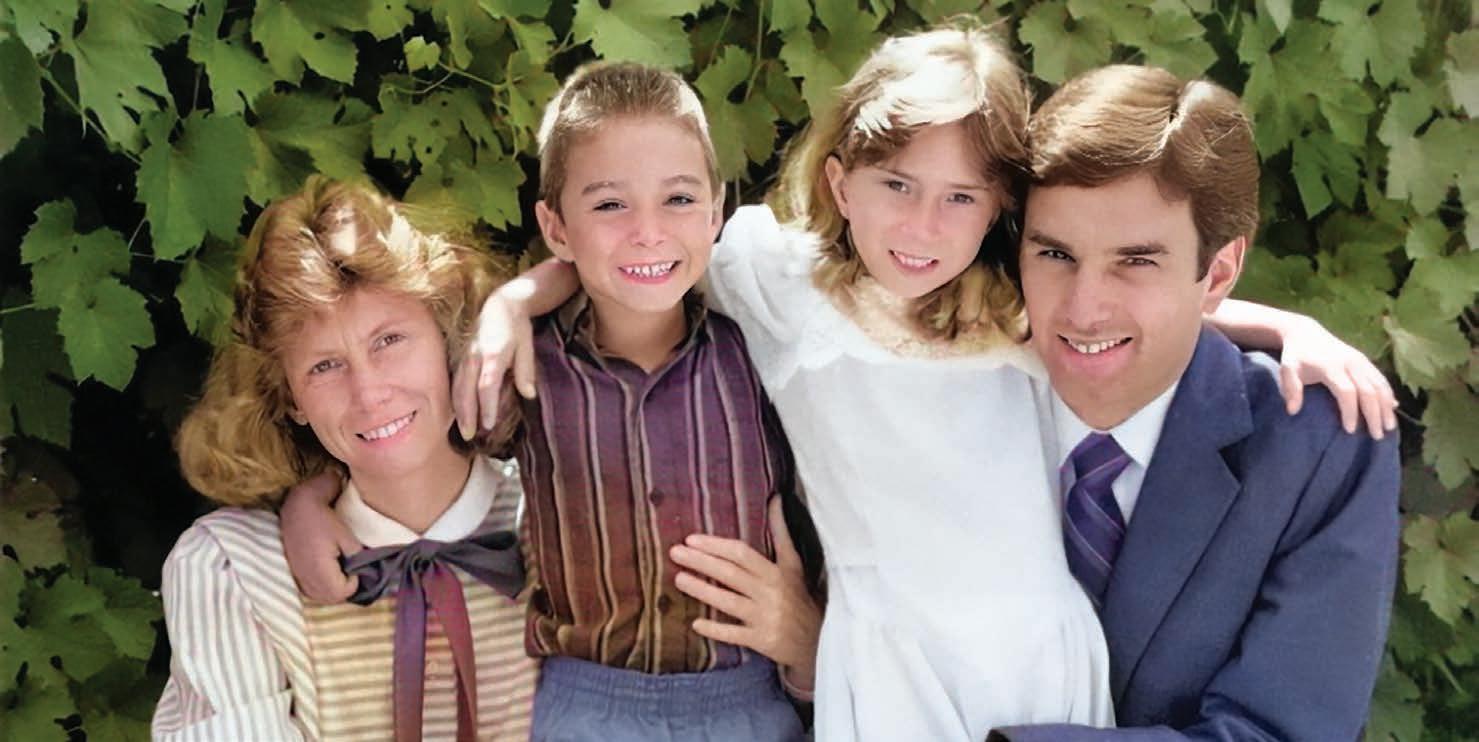
BY JOHN BAXTER
Victorious Pilgrims
Throughout history there have been men and women who were pilgrims on earth who planted seeds of faith for the kingdom of God. Some were able to see the fruits of their labors; some died in faith, not knowing the results. Here are a few pilgrims you may (or may not) know:
Abraham — the Biblical patriarch who traveled from Ur of Chaldees to go to a land he did not know, choosing to trust the leading of God, he became the father of the faithful.
William Carey — taught himself Hebrew, Greek and Latin while making shoes in England. Carey went to India in 1793 and, during his lifetime, translated the complete Bible into six major languages and parts of the Bible into 29 other languages.
Adoniram Judson — the first American overseas missionary, traveled to Burma in 1812, translated the Bible, and oversaw the planting of over 100 churches yielding 8,000 believers before going to sleep in Christ in 1850. The believers now number in the hundreds of thousands.
William Brewster and the Plymouth Pilgrims — fled from England in 1620 to be able to worship according to the dictates of their conscience and to establish a land of freedom.
Marc and Aunie Scalzi — migrated to Ifugao, Philippines, in 1987 with a fledgling mission agency, Adventist Frontier Missions, and lived among the people for six years. Thirty years later, they returned and observed nine churches, several companies and over 900 believers from the seeds they planted.
Brad and Cathy Jolly — seminary students at Andrews University who moved to Mongolia in 1991, where there was not a single Seventh-day Adventist Christian. They labored lovingly and earnestly for seven years and laid the foundation for the church, which has grown to more than 3,000 members.
Jesus Christ — the Son of God, stepped down from His heavenly position and became the Lamb of God who takes away the sin of the world. His willingness to sacrifice opened the door of salvation for all who will trust in Him.
These all . . . confessed that they were strangers and pilgrims on the earth. For those who say such things declare plainly that they seek a homeland. And truly if they had called to mind that country from which they had come out, they would have had opportunity to return. But now they desire a better, that is, a heavenly country. Therefore God is not ashamed to be called their God, for He has prepared a city for them (Hebrews 11:13 – 16).
Jesus is preparing a city for His victorious pilgrims. He is calling others to join Him in seeking to save those who are longing for heaven. You, too, can leave a legacy of faith among an unreached people group. Please contact us at office@afmeu.org or +40 773 749 353, and we will assist you on your pilgrim journey.
Bissau Muslims of Guinea Bissau
Yadav Hindus of India
Hrvati Orthodox of Croatia
Fulani Muslims of Guinea Protestant Highlanders of Scotland
love Jesus and want to do what He commands.
The Scalzi family, Aunie, Shiloh, Cheris and Marc, served with AFM from 1987 to 1998.
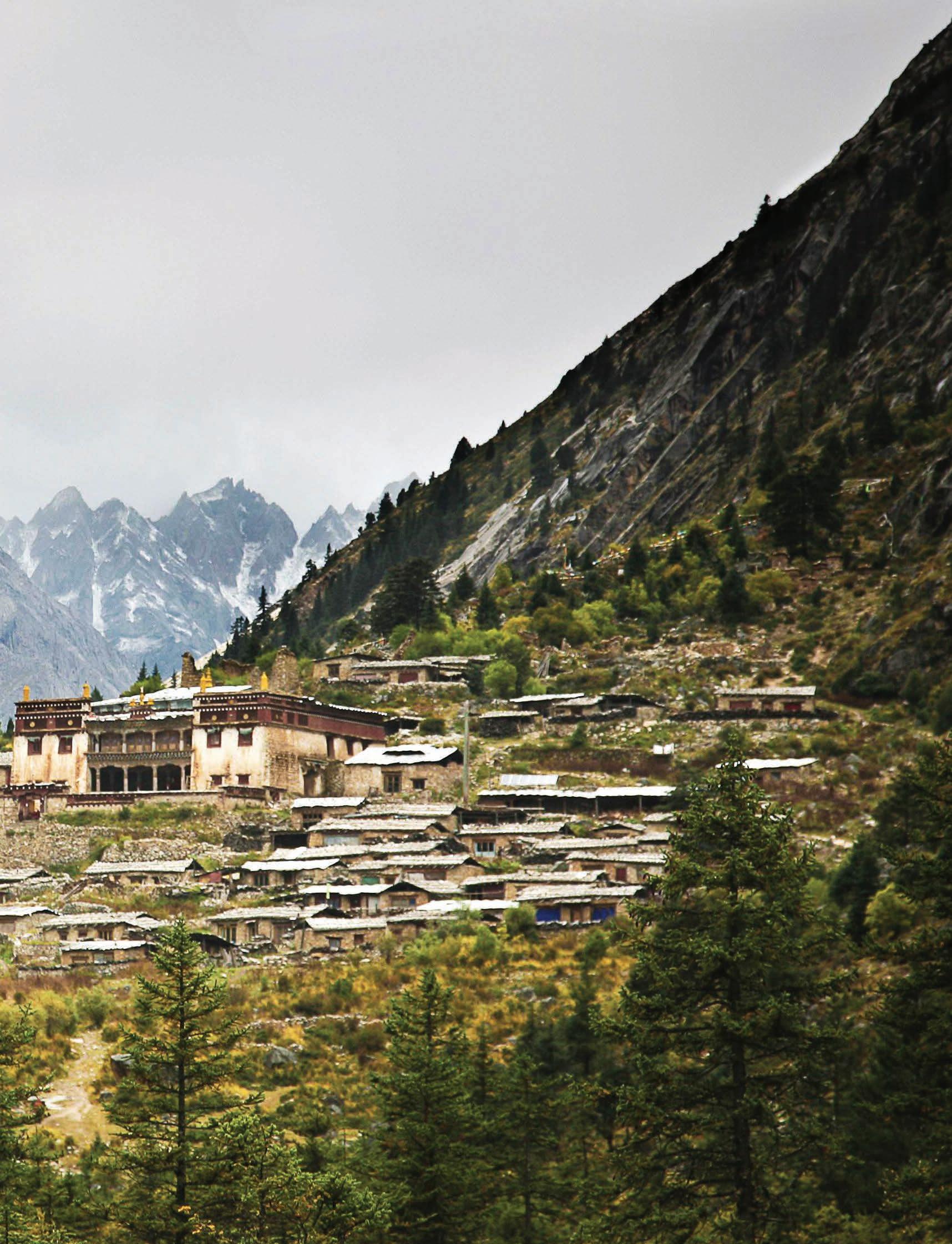
Review & Herald, March, 24,
